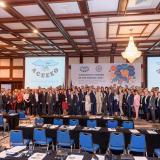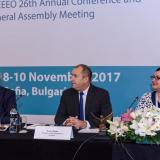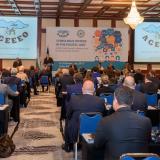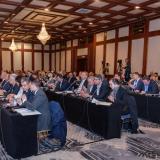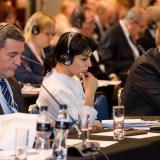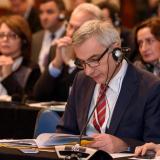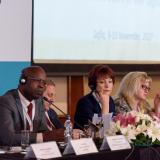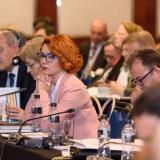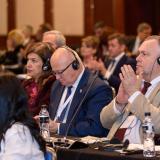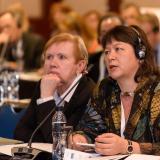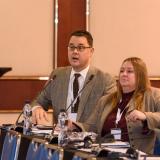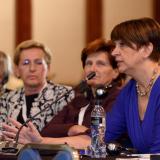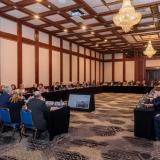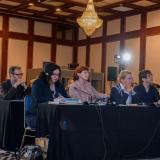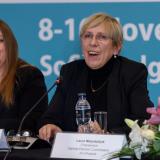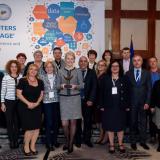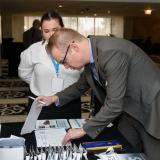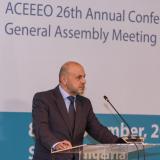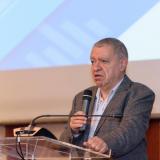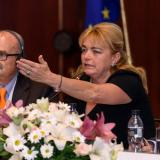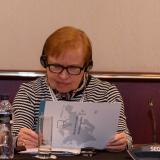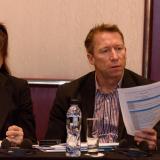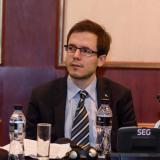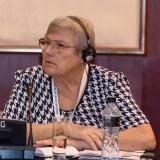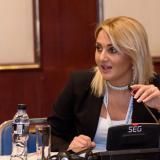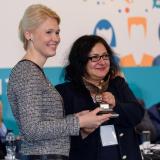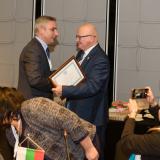 In 2017 Bulgaria, our founder-member took over the Presidency of the Association and hosts the 26th Annual Conference. With the active participation of over 100 electoral experts this year we intend to discuss the topic of ‘The Conscious Voters in the digital age’. In the frame of the theoretical aspects we will focus on questions of the access to the public information; the freedom of expression; the free electoral campaign. During the conference we would like to deal with several practical aspects, like the new ways of voter information; special needs of youth voters; the role of the EMBs in the flow of the information.
In 2017 Bulgaria, our founder-member took over the Presidency of the Association and hosts the 26th Annual Conference. With the active participation of over 100 electoral experts this year we intend to discuss the topic of ‘The Conscious Voters in the digital age’. In the frame of the theoretical aspects we will focus on questions of the access to the public information; the freedom of expression; the free electoral campaign. During the conference we would like to deal with several practical aspects, like the new ways of voter information; special needs of youth voters; the role of the EMBs in the flow of the information.
The recent years’ elections raised several phenomena that totally rearrange that we thought about elections, electoral campaign, voters’ behavior and voter information.
Election turnout is decreasing critically, and there are rare examples where the process could be reversed.
Most of the voters do not collect information before the elections in the traditional way. Voter information tools that worked well in the past do not reach enough people. New forms of communication became popular but influence not only the quantity of information that reach the voter but also the quality.
Campaigns are less complex, campaign programs of candidates and political parties are simplified or do not exist. Social media creates an information bubble for the users and closes them from the different opinions. Fake news flood the internet and influence voters also in political matters. The campaign money has a huge influence on the results of the election.
These phenomena raise numerous theoretical and practical questions.
Theoretical aspects
A broadly accepted constitutional principle is the right to access the public information in a democratic society. This right is a precondition of the freedom of information as without the necessary knowledge citizens cannot participate in the democratic debate and the public life.
Basically, freedom of expression and freedom of press demand the non-interference of the state. However, in order to enhance the democratic debate and the voters’ right to be informed, exceptionally it can interfere with the flow of information.
The question is, what can be the level of this interference, how far can the state go when regulating the campaign and influencing its natural way? What are the best methods to help voters understand more difficult political issues if campaigns are simplified? How to make them have all necessary information to become a conscious voter? How to increase voter turnout?
Practical aspects
Not only campaign information should be available for the voters but also information on the electoral system and process.
Electoral management bodies have a crucial role in voters' information. The question is, how they can complete the use of traditional ways of information, reflecting on the challenges of the 21st century, by using the recent developments of ICT and social media?
Youth voters are a special group; their special needs should be taken into account. Complete programs shall be provided for the education that is important to be developed in cooperation with educational institutions and educational non-governmental organizations.
Also, regional electoral organizations play an important role in this field. As part of a long-term strategy, ACEEEO would like to provide assistance for electoral management bodies to face the challenges of the 21st century that comes from the changes of the technical conditions of communication in the electoral process. Our goal is to enable electoral stakeholders to increase voters’ information and, as a consequence, to return tendency of decreasing voter turnout.
15.30 – 16.00 Executive Board Meeting (for Executive Board members)
16.00 – 16.30 Coffee break
16.30 – 17.30 ACEEEO General Assembly Meeting (for ACEEEO members)
19.30 – Dinner
9.30 – 10.30 Official opening of conference and the exhibition
Chair:
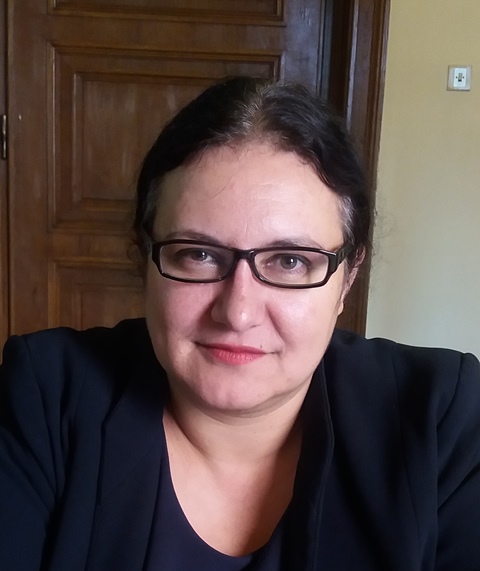 Mrs. Robinson has been a Chair of the Central Election Commission (CEC) since March 2014. Before that she was Executive Director of the Institute of Modern Politics – a non-profit organization, which works in the field of monitoring the legislation according to the principles of transparency, publicity, accountability and civil participation in decision making. She was an advisor to the Minister of Emergency Situations; a lawyer; a member of the CEC (2005). Her professional experience includes advising NGOs working in the field of human rights protection and good governance. Mrs. Robinson is an author of analyzes and proposals for new/ amendments of the electoral legislation. She participated in Civil Councils to the Parliament Committees for the preparation of the Election Code now in force; in round tables and discussions on electoral matters; in preparation of statements on conducting of the presidential elections 2011 for Constitutional Court cases and others. At present Mrs. Robinson is a President of the Association of European Election Officials (ACEEEO).
Mrs. Robinson has been a Chair of the Central Election Commission (CEC) since March 2014. Before that she was Executive Director of the Institute of Modern Politics – a non-profit organization, which works in the field of monitoring the legislation according to the principles of transparency, publicity, accountability and civil participation in decision making. She was an advisor to the Minister of Emergency Situations; a lawyer; a member of the CEC (2005). Her professional experience includes advising NGOs working in the field of human rights protection and good governance. Mrs. Robinson is an author of analyzes and proposals for new/ amendments of the electoral legislation. She participated in Civil Councils to the Parliament Committees for the preparation of the Election Code now in force; in round tables and discussions on electoral matters; in preparation of statements on conducting of the presidential elections 2011 for Constitutional Court cases and others. At present Mrs. Robinson is a President of the Association of European Election Officials (ACEEEO).
Speakers:
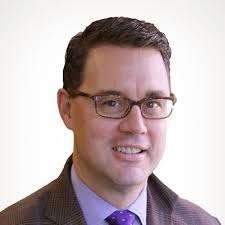 Michael Svetlik currently serves as Vice President of Programs for the International Foundation for Electoral Systems, providing policy and programming guidance to IFES' international operations that currently include electoral assistance and democratic institution building in over 30 countries. He is the IFES representative on the steering boards of both the ACE Project and BRIDGE partnerships, as well as participates in a variety of international fora to promote and support comparative best practices and international standards within the democracy support community.
Michael Svetlik currently serves as Vice President of Programs for the International Foundation for Electoral Systems, providing policy and programming guidance to IFES' international operations that currently include electoral assistance and democratic institution building in over 30 countries. He is the IFES representative on the steering boards of both the ACE Project and BRIDGE partnerships, as well as participates in a variety of international fora to promote and support comparative best practices and international standards within the democracy support community.
Areas of expertise include political change, institutional development, election system design, civic awareness and activism, and project management, evaluation and design. He has actively contributed to democracy and governance programming in Central and Eastern Europe, South Asia, the Middle East, Sub-Saharan Africa and Southeast Asia.
Svetlik previously served as Senior Director of Programs and Regional Director for Europe & Asia at IFES. He directed overseas IFES projects in both Georgia and Azerbaijan from 1998-2000. In 1998, Svetlik was awarded a U.S. Department of State Professional Development Fellowship to conduct research in Tbilisi, Georgia, at the Caucasus Institute for Peace, Democracy and Development. He was also a Senior Lecturer at the National School of Public Administration in Warsaw (1994-1995) and served as a Peace Corps volunteer in Poland from 1992-1994.
He holds a master’s degree in international relations from the School of Advanced International Studies at Johns Hopkins University and a bachelor’s degree in English and Italian from the University of Texas-Austin.
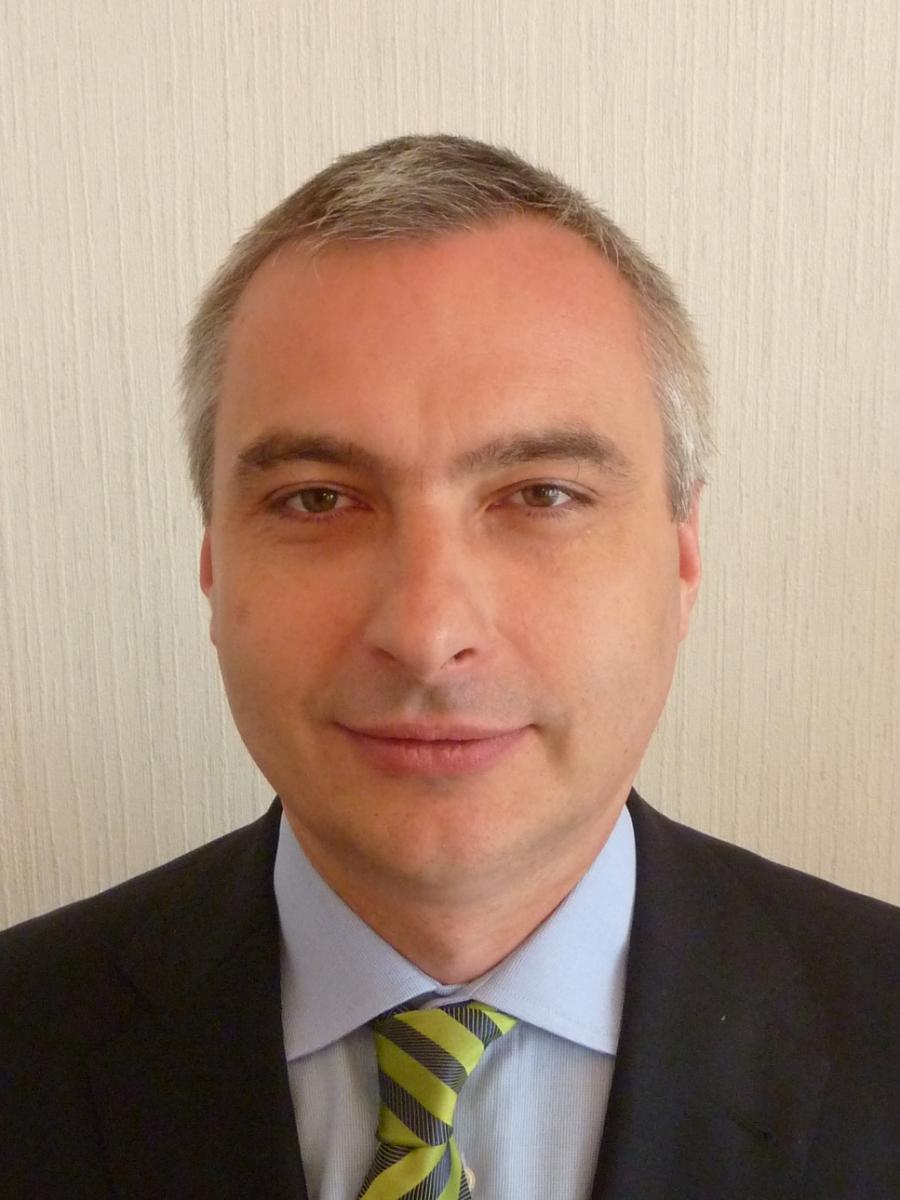 Zsolt Szolnoki currently serves as Secretary General for the Association of the European Election Officials on a voluntarily basis, providing leadership to the Secretariat’s work. He manages the annual conferences, supervises the projects’ preparations, the agendas for the Executive Board and the General Assembly meetings. His areas of expertise include planning for the elections, e-voting, election observations and supervisions, project management and design. He started to work for the ACEEEO in 1995, when he organized the annual conference in Siófok, Hungary. Since this year, he organized and attended all ACEEEO annual conference and Executive Board meeting. At the end of the nineties, he prepared several large observation missions to the Balkan region. In 2000, he worked for the OSCE Mission to Kosovo providing expertise for the preparatory work of the first election in Kosovo. He represented the ACEEEO as an international expert in many conferences and seminars. In his professional capacity between 1993 and 2002 he worked for the Hungarian National Election Office as the Deputy Head of the Election Department. From 2002 to 2005 he served as Head of IT department in the Ministry of Interior. From 2006 till November 2010 he worked for the European Commission as a Seconded National Expert on the area of Home Affairs. In 2011 he was the Chairman of a working group in the Hungarian EU Presidency team. Currently he is a high counselor in the Ministry of Interior of Hungary. He holds a B.A in Public Administration and completed a post graduate course in Business Management.
Zsolt Szolnoki currently serves as Secretary General for the Association of the European Election Officials on a voluntarily basis, providing leadership to the Secretariat’s work. He manages the annual conferences, supervises the projects’ preparations, the agendas for the Executive Board and the General Assembly meetings. His areas of expertise include planning for the elections, e-voting, election observations and supervisions, project management and design. He started to work for the ACEEEO in 1995, when he organized the annual conference in Siófok, Hungary. Since this year, he organized and attended all ACEEEO annual conference and Executive Board meeting. At the end of the nineties, he prepared several large observation missions to the Balkan region. In 2000, he worked for the OSCE Mission to Kosovo providing expertise for the preparatory work of the first election in Kosovo. He represented the ACEEEO as an international expert in many conferences and seminars. In his professional capacity between 1993 and 2002 he worked for the Hungarian National Election Office as the Deputy Head of the Election Department. From 2002 to 2005 he served as Head of IT department in the Ministry of Interior. From 2006 till November 2010 he worked for the European Commission as a Seconded National Expert on the area of Home Affairs. In 2011 he was the Chairman of a working group in the Hungarian EU Presidency team. Currently he is a high counselor in the Ministry of Interior of Hungary. He holds a B.A in Public Administration and completed a post graduate course in Business Management.
10.30 – 11.00 Group photo, visiting the exhibition
11.00 – 11.45 Welcome to Bulgaria! Presentation of the CEC Bulgaria
Speaker:
 Mrs. Robinson has been a Chair of the Central Election Commission (CEC) since March 2014. Before that she was Executive Director of the Institute of Modern Politics – a non-profit organization, which works in the field of monitoring the legislation according to the principles of transparency, publicity, accountability and civil participation in decision making. She was an advisor to the Minister of Emergency Situations; a lawyer; a member of the CEC (2005). Her professional experience includes advising NGOs working in the field of human rights protection and good governance. Mrs. Robinson is an author of analyzes and proposals for new/ amendments of the electoral legislation. She participated in Civil Councils to the Parliament Committees for the preparation of the Election Code now in force; in round tables and discussions on electoral matters; in preparation of statements on conducting of the presidential elections 2011 for Constitutional Court cases and others. At present Mrs. Robinson is a President of the Association of European Election Officials (ACEEEO).
Mrs. Robinson has been a Chair of the Central Election Commission (CEC) since March 2014. Before that she was Executive Director of the Institute of Modern Politics – a non-profit organization, which works in the field of monitoring the legislation according to the principles of transparency, publicity, accountability and civil participation in decision making. She was an advisor to the Minister of Emergency Situations; a lawyer; a member of the CEC (2005). Her professional experience includes advising NGOs working in the field of human rights protection and good governance. Mrs. Robinson is an author of analyzes and proposals for new/ amendments of the electoral legislation. She participated in Civil Councils to the Parliament Committees for the preparation of the Election Code now in force; in round tables and discussions on electoral matters; in preparation of statements on conducting of the presidential elections 2011 for Constitutional Court cases and others. At present Mrs. Robinson is a President of the Association of European Election Officials (ACEEEO).
11.45 – 12.00 Presentation of the Information Services JSC, the Gold Sponsor of the Conference
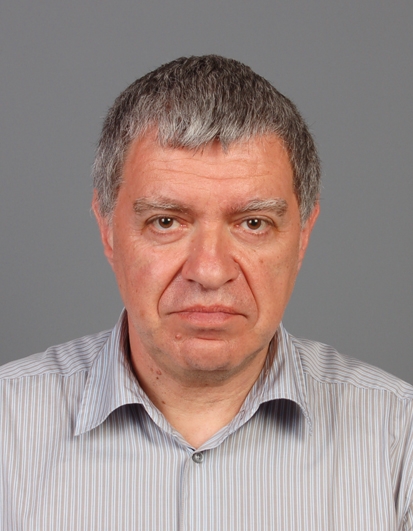 Mihail Konstantinov is professor in Mathematics with the University of Architecture, Civil Engineering and Geodesy, Sofia, Bulgaria and member of the Bulgarian Academy of Sciences and Arts. He is author and co-author of 600 scientific works including 30 books which are cited more than 2000 times. His scientific interests include Differential Equations, Control Theory, Computational Methods and Voting Theory. For 20 years he has served as member and Vice-President of the Central Election Commission of Bulgaria. Now he is Chairman of the Board of Directors of Information Services JSC, which is responsible for processing the voting results in Bulgaria since 2001.
Mihail Konstantinov is professor in Mathematics with the University of Architecture, Civil Engineering and Geodesy, Sofia, Bulgaria and member of the Bulgarian Academy of Sciences and Arts. He is author and co-author of 600 scientific works including 30 books which are cited more than 2000 times. His scientific interests include Differential Equations, Control Theory, Computational Methods and Voting Theory. For 20 years he has served as member and Vice-President of the Central Election Commission of Bulgaria. Now he is Chairman of the Board of Directors of Information Services JSC, which is responsible for processing the voting results in Bulgaria since 2001.
12.00 – 13.00 Plenary session I.
Conscious voters in the digital age – general background
Chair: Ivilina Aleksieva-Robinson, President of ACEEEO, Chairperson of the Central Electoral Commission of Bulgaria
Speakers:
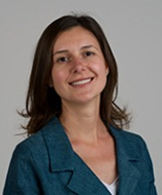 Ana Rusu, currently serves as Senior Election Adviser with the OSCE Office for Democratic Institutions and Human Rights. Lawyer by background, she occupied since 2003 several positions with the Council of Europe including lawyer to the Groupe of States against Corruption (GRECO), programme manager for the development of a School of Magistrates in Georgia (2004 - 2005), Co-secretary of the Consultative Council of European Prosecutors and Secretary of the Lisbon Network in Strasbourg (2006 - 2009), referendaire to the European Social Charter (2009 – 2010) and programme manager for electoral assistance in the countries of Eastern and South Eastern Europe (2012 - 2017). On behalf of ICON INSTITUTE (Germany) she was also involved in consultancy activities in Kazakhstan in the field of judiciary reform and in Uzbekistan in the field of parliamentary democracy (2010 - 2012).
Ana Rusu, currently serves as Senior Election Adviser with the OSCE Office for Democratic Institutions and Human Rights. Lawyer by background, she occupied since 2003 several positions with the Council of Europe including lawyer to the Groupe of States against Corruption (GRECO), programme manager for the development of a School of Magistrates in Georgia (2004 - 2005), Co-secretary of the Consultative Council of European Prosecutors and Secretary of the Lisbon Network in Strasbourg (2006 - 2009), referendaire to the European Social Charter (2009 – 2010) and programme manager for electoral assistance in the countries of Eastern and South Eastern Europe (2012 - 2017). On behalf of ICON INSTITUTE (Germany) she was also involved in consultancy activities in Kazakhstan in the field of judiciary reform and in Uzbekistan in the field of parliamentary democracy (2010 - 2012).
Rusu holds a master degree in law from the State University of Moldova as well as a university diploma for administrator of elections from the University Paris 1 – Pantheon Sorbonne. She is fluent in French, Romanian, Russian and English.
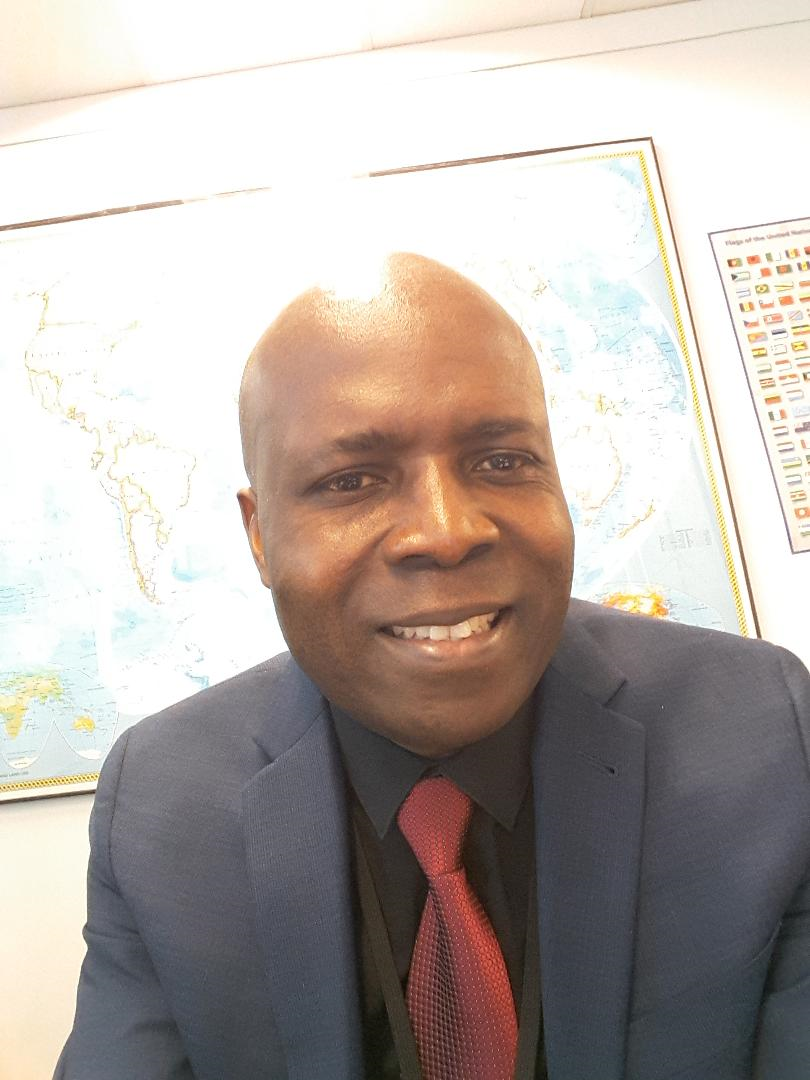 Simon-Pierre Nanitelamio is the Deputy Director of the Electoral Assistance Division (EAD) of the United Nations Department of Political Affairs (DPA). With more than 23 years of field experience, he is an expert in international electoral assistance with a strong background in election programmes management, electoral needs assessment, programme formulation, strategic and operational planning.
Simon-Pierre Nanitelamio is the Deputy Director of the Electoral Assistance Division (EAD) of the United Nations Department of Political Affairs (DPA). With more than 23 years of field experience, he is an expert in international electoral assistance with a strong background in election programmes management, electoral needs assessment, programme formulation, strategic and operational planning.
Prior to his appointment in New York as the Deputy Director of EAD in February 2017, Simon-Pierre Nanitelamio was EAD’s Principal Electoral Affairs Officer at the United Nations Office to the African Union (UNOAU) in Addis Ababa for 2 years (February 2015 – January 2017), where he provided senior level electoral expertise to DPA/UNOAU and the entire UN system, including undertaking electoral prevention initiatives, throughout the African continent.
Prior to joining EAD/DPA, Mr. Nanitelamio has worked across the United Nations System (from peace operations to UNDP/development settings) at senior level in such places as Madagascar, Cameroon, East Timor, the Democratic Republic of Congo, Cambodia, Mozambique, Chad, Malawi. Guinea-Bissau, Côte d’Ivoire, Guinea-Bissau, São Tomé and Principe, Central African Republic, Angola, etc. He has led an electoral advisory mission to Comoros (April-May 2016), an electoral pre-assessment mission to Somalia (July 2015) and several electoral needs assessment missions: Central African Republic (October 2016), Madagascar (March-April 2016), Zimbabwe (May-June 2015), Guinea-Conakry (April 2015), Benin (February 2015 and September 2015), Comoros (August 2014), Burkina Faso (February 2012), Chad (2000). He has also participated as NAM team member in various others (Côte d’Ivoire, 2014 and 2000), Madagascar (April 2012), Cameroon (2011), Benin (2010), etc.Simon-Pierre NANITELAMIO is graduated in political science, in history, in diplomacy and management of international organizations from the Universities of Paris I-La Sorbonne, Paris XI-Sceaux and Paris VII-Jussieu, in France. He is fluent in French, Portuguese and English.
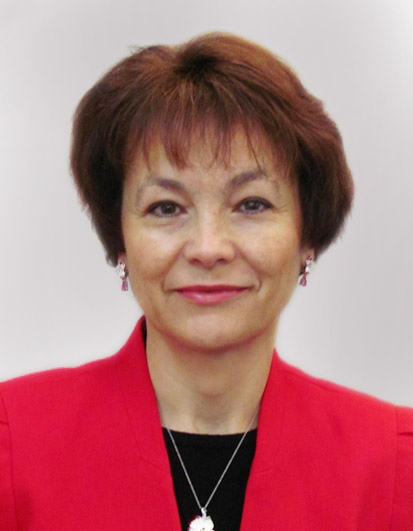 Rositsa Borisova Mateva has been a member of the Central Election Commission of the Republic of Bulgaria since the month of March 2014.
Rositsa Borisova Mateva has been a member of the Central Election Commission of the Republic of Bulgaria since the month of March 2014.
Ms. Mateva is a lawyer by education. She holds a “Master” degree in Law from Sofia University St. Kliment Ohridski obtained in 1991. In 1992 she was a trainee – judge in the Regional Court Pleven. Practices in the field of civil, and in particular law, employment and labor law, in the field of commercial and administrative law, by providing legal protection and assistance to legal and natural persons before civil and administrative courts in all judicial bodies; of legal persons before the arbitral tribunals.
She was a member of a Labor Legislation Committee to the National Council for Trilateral Cooperation during the period 2010 – 2014. She is an arbitrator in the National Council for Conciliation and Arbitration.
She was a member of a Polling Section of Election Commission and an observer of the election process in the nineties. From 2005 to 2009 she was a member of the Regional Election Commission in Sofia for the following elections: Parliamentary elections 2005; Elections for President and Vice President 2006; Elections for European Parliament 2007; Parliamentary Elections 2009;
As a member of the Central Election Commission she was a Manager of a working group for “Complaints and Alerts” and at the moment of the Group for “Explanatory and Pre-Election Campaign”. As a member of the CEC, she participated in Finland in June 2014 in the 11th European CEC Conference, co-organized by the Venice Commission, the Ministry of Justice, the Parliament and the Court of Auditors of Finland; as an observer of the Presidential Elections in the Republic of Croatia – December 2014; in the Dominican Republic at the 2nd General Assembly of A-WEB, held in August 2015; in February 2016 in Georgia at the 6th meeting of the organizations for management of the conduct of elections and conference “Money and Policy” organized jointly with the Organization for Security and Cooperation in Europe (OSCE)/Office for Democratic Institutions and Human Rights (ODIHR); in June 2016 in Manchester, Great Britain – observation over the referendum for the membership of Great Britain in the European Union by invitation of the British Central Election Commission; during the month of May 2017 in Saint Petersburg, Russia at the 14th European Conference of Electoral Management Bodies, organized by the Venice Commission; during the month of August 2017 in Bucharest, Romania – at the 3rd General Assembly of A-WEB.
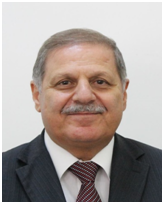 Mr. Abu Fares is currently president of the Executive Office of the Arab Organization for Election Management Bodies, and member of the Board of Commissioners of the Independent Election Commission of Jordan. He is also author of four books in politics, health education and the environment.
Mr. Abu Fares is currently president of the Executive Office of the Arab Organization for Election Management Bodies, and member of the Board of Commissioners of the Independent Election Commission of Jordan. He is also author of four books in politics, health education and the environment.
He was president of the Jordan Medical Association, and chairman of the Board of the Professional Associations in Jordan. Mr. Abu Fares was also Deputy Secretary General of the Union of Arab Physicians.
Mr. Abu Fares is vice-President of the Arab– Euro Mediterranean Forum for Medical Associations, and member of the Jordanian Authors Association and of the Arab Authors Union
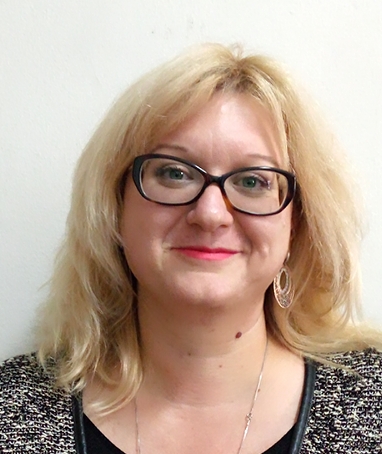 Yordanka Gancheva has been a member of the Central Election Commission of the Republic of Bulgaria since March 2014. She was born on 9-th of May 1980 in Varna and is a lawyer by education. She is a Manager of a working group for the organization and conduct of the elections abroad. She was a member of the Municipal Election Commission-Varna, a member of a District Election Commission- Varna for the induction of the national referendum in 2012. She has been repeatedly a member of Polling Station of Election Commission. Previously, she was a legal advisor to private companies and government organizations. In 2015 she participated in a 5-day training course at the International Centre for Parliamentary Studies – ICPS, London in the field of the election reform. In 2016, she obtained a CMI level 7 certificate for Strategic Management and Leadership at the Chartered Management Institute. She was an observer in the presidential elections in the Republic of Croatia in 2014, the regional elections in France in 2015, an observer of Britain's referendum on state membership in the European Union, an observer in local elections in Georgia. She has participated in various conferences, seminars, and roundtables on elections.
Yordanka Gancheva has been a member of the Central Election Commission of the Republic of Bulgaria since March 2014. She was born on 9-th of May 1980 in Varna and is a lawyer by education. She is a Manager of a working group for the organization and conduct of the elections abroad. She was a member of the Municipal Election Commission-Varna, a member of a District Election Commission- Varna for the induction of the national referendum in 2012. She has been repeatedly a member of Polling Station of Election Commission. Previously, she was a legal advisor to private companies and government organizations. In 2015 she participated in a 5-day training course at the International Centre for Parliamentary Studies – ICPS, London in the field of the election reform. In 2016, she obtained a CMI level 7 certificate for Strategic Management and Leadership at the Chartered Management Institute. She was an observer in the presidential elections in the Republic of Croatia in 2014, the regional elections in France in 2015, an observer of Britain's referendum on state membership in the European Union, an observer in local elections in Georgia. She has participated in various conferences, seminars, and roundtables on elections.
13.00 – 14.00 Lunch
14.00 – 15.30 Plenary session II.
Conscious voters in the digital age – Case studies
Chair:
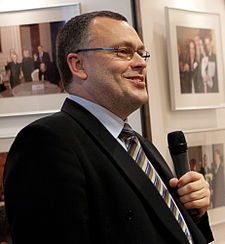 Arnis Cimdars is Chairman of the Central Election Commission of Latvia since December 1997, member of the CEC since January 1997. Over the last 19 years Mr. Cimdars has managed and administrated six parliamentary elections, five local government elections, three European Parliament elections and several referenda, observed various types of election in around 20 countries, actively participated in numerous international conferences and seminars as participant, moderator and speaker. Mr. Cimdars has also contributed as lecturer, consultant and expert in the fields of voter registration, voter education, election commission training, election observation and IT solutions for elections. He has worked as the election expert of the Venice Commission of the Council of Europe several times. He is the Executive Board Member of the ACEEEO since 2000, former President of the ACEEEO from 2005 to 2007. In 2014 Arnis Cimdars received the highest award in the Republic of Latvia for special merits to the country – The Order of the Three Stars.
Arnis Cimdars is Chairman of the Central Election Commission of Latvia since December 1997, member of the CEC since January 1997. Over the last 19 years Mr. Cimdars has managed and administrated six parliamentary elections, five local government elections, three European Parliament elections and several referenda, observed various types of election in around 20 countries, actively participated in numerous international conferences and seminars as participant, moderator and speaker. Mr. Cimdars has also contributed as lecturer, consultant and expert in the fields of voter registration, voter education, election commission training, election observation and IT solutions for elections. He has worked as the election expert of the Venice Commission of the Council of Europe several times. He is the Executive Board Member of the ACEEEO since 2000, former President of the ACEEEO from 2005 to 2007. In 2014 Arnis Cimdars received the highest award in the Republic of Latvia for special merits to the country – The Order of the Three Stars.
Speakers:
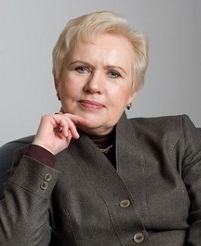 Ms. Yarmoshyna was born in Slutsk, Minsk Voblast on 29 January 1953. In 1975, she graduated from the Faculty of Law at the Immanuel Kant Baltic Federal University. Beginning in 1975, she worked as a legal advisor until becoming an attorney's assistant in 1987. She became Chairwoman of the Judiciary of the City Executive Committee of Babruysk in 1988, a post she held until 1996. She has been a member of the Central Election Commission of Belarus since 1992, and Chairwoman of organization since 1996.
Ms. Yarmoshyna was born in Slutsk, Minsk Voblast on 29 January 1953. In 1975, she graduated from the Faculty of Law at the Immanuel Kant Baltic Federal University. Beginning in 1975, she worked as a legal advisor until becoming an attorney's assistant in 1987. She became Chairwoman of the Judiciary of the City Executive Committee of Babruysk in 1988, a post she held until 1996. She has been a member of the Central Election Commission of Belarus since 1992, and Chairwoman of organization since 1996.
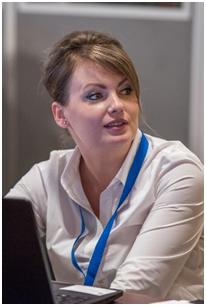 Ingrid Bicu is currently serving as the Director of the Communication and International Affairs Department within the Permanent Electoral Authority of Romania. Previous affiliations include the Romanian National Intelligence Academy and the Open Source Centre. She has an extensive experience in the digital field as she has been working more than ten years as an open source analyst. Ms. Bicu has also contributed as lecturer and expert in the fields of knowledge management, competitive intelligence, collaborative IT solutions.
Ingrid Bicu is currently serving as the Director of the Communication and International Affairs Department within the Permanent Electoral Authority of Romania. Previous affiliations include the Romanian National Intelligence Academy and the Open Source Centre. She has an extensive experience in the digital field as she has been working more than ten years as an open source analyst. Ms. Bicu has also contributed as lecturer and expert in the fields of knowledge management, competitive intelligence, collaborative IT solutions.
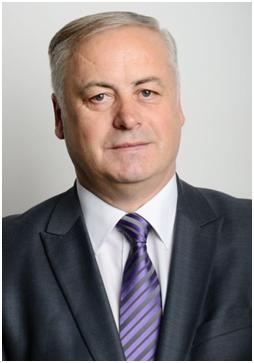 Dr. Suad Arnautović, has been a Member of the BiH Central Election Commission since June 2004. Following the initial seven-year term of office, he was re-appointed on 22 September 2011. From January 2008 to May 2009, Mr Arnautović was the President of the BiH Central Election Commission. Mr Arnautović participated in many international science and technical symposia and seminars on elections and electoral processes, as well as in election observer missions around the globe. He also attended a number of international science and professional conferences on political party funding, political integrity and electoral processes in Egypt, Serbia, Moldova, Kyrgyzstan, France and the United Kingdom. He is a Member of the Association of Election Officials in Bosnia and Herzegovina, the Political Science Association of Bosnia and Herzegovina, and IPSA (International Political Science Association). Mr Arnautović completed the 2007 training for international short-term election observers (STO) organised by the OSCE/ODIHR at the OSCE Academy in Bishkek, Kyrgyzstan. He published over twenty scientific and professional papers in different BiH and foreign journals and authored a number of articles, reviews and commentaries in daily and weekly print media.
Dr. Suad Arnautović, has been a Member of the BiH Central Election Commission since June 2004. Following the initial seven-year term of office, he was re-appointed on 22 September 2011. From January 2008 to May 2009, Mr Arnautović was the President of the BiH Central Election Commission. Mr Arnautović participated in many international science and technical symposia and seminars on elections and electoral processes, as well as in election observer missions around the globe. He also attended a number of international science and professional conferences on political party funding, political integrity and electoral processes in Egypt, Serbia, Moldova, Kyrgyzstan, France and the United Kingdom. He is a Member of the Association of Election Officials in Bosnia and Herzegovina, the Political Science Association of Bosnia and Herzegovina, and IPSA (International Political Science Association). Mr Arnautović completed the 2007 training for international short-term election observers (STO) organised by the OSCE/ODIHR at the OSCE Academy in Bishkek, Kyrgyzstan. He published over twenty scientific and professional papers in different BiH and foreign journals and authored a number of articles, reviews and commentaries in daily and weekly print media.
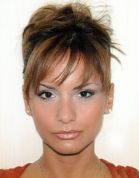 Ms. Natia Zaalishvili is presently the Director of the Centre for Electoral Systems Development, Reforms and Trainings in Georgia. She is a lawyer by profession and has extensive experience in both the private and public sectors respectively. In the private sector, Natia worked as Senior Lawyer of the Anti-money laundering department of the United Georgian Bank. Her career in the Public Service started in 2006 at the Parliament of Georgia as Leading Specialist of the Committee of Regional Policy and Self-Government. She was then appointed as Senior Consultant to the Legislative and Legal Expertise Division in Office of the Parliamentary Secretary of the President of Georgia. In 2007, Natia became the Deputy-Head of Office of the Parliamentary Secretary of the President of Georgia and held the latter position until 2010 when she decided to move to the then newly created Centre for Electoral Systems Development, Reforms and Trainings. In 2013 she won the international award for her work in the area of First-Time Voters’ education. She has provided international assistance to a number of countries in the area of electoral training organization and the creation of electoral training centres.
Ms. Natia Zaalishvili is presently the Director of the Centre for Electoral Systems Development, Reforms and Trainings in Georgia. She is a lawyer by profession and has extensive experience in both the private and public sectors respectively. In the private sector, Natia worked as Senior Lawyer of the Anti-money laundering department of the United Georgian Bank. Her career in the Public Service started in 2006 at the Parliament of Georgia as Leading Specialist of the Committee of Regional Policy and Self-Government. She was then appointed as Senior Consultant to the Legislative and Legal Expertise Division in Office of the Parliamentary Secretary of the President of Georgia. In 2007, Natia became the Deputy-Head of Office of the Parliamentary Secretary of the President of Georgia and held the latter position until 2010 when she decided to move to the then newly created Centre for Electoral Systems Development, Reforms and Trainings. In 2013 she won the international award for her work in the area of First-Time Voters’ education. She has provided international assistance to a number of countries in the area of electoral training organization and the creation of electoral training centres.
 He graduated from the Faculty of Law at Sofia University "St. Kliment Ohridski "in Sofia, in 1992. In 2005 he obtained a Master's degree in Accounting and Control from the University of National and World Economy, Sofia. In 2010 he became a PhD in International Private Law at the New Bulgarian University. In 1993, he began working as a freelance lawyer enrolled in the Sofia Bar Association.. Since 2006 he has been a mediator in civil and commercial disputes. From 2003 to 2012 he is a regular assistant in international private law at the New Bulgarian University, after which he was appointed chief assistant in the same discipline.
He graduated from the Faculty of Law at Sofia University "St. Kliment Ohridski "in Sofia, in 1992. In 2005 he obtained a Master's degree in Accounting and Control from the University of National and World Economy, Sofia. In 2010 he became a PhD in International Private Law at the New Bulgarian University. In 1993, he began working as a freelance lawyer enrolled in the Sofia Bar Association.. Since 2006 he has been a mediator in civil and commercial disputes. From 2003 to 2012 he is a regular assistant in international private law at the New Bulgarian University, after which he was appointed chief assistant in the same discipline.
He is a lecturer on EU competition law and on the legal norm of foreign investment. He first joined the CEC in 2007 when the local elections were held. He participated in the CEC in the election for members of the National Assembly and the election for members of the European Parliament from the Republic of Bulgaria in 2009. From 2013 till now he is a CEC spokesman. He has participated in international observer missions in different countries.
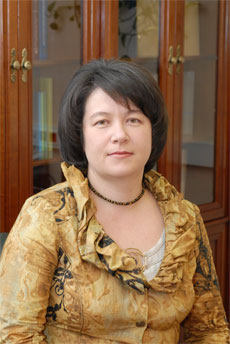 She was born on May 2, 1969 in Moscow.
She was born on May 2, 1969 in Moscow.
In 1992 she graduated from the M.V. Lomonosov Moscow State University with a degree in jurisprudence.
In 1992-1993 she was a leading specialist of the Constitutional Commission Registry, and then of the Constitutional legislation committee of the Supreme Soviet of the Russian Federation.
In 1993-2003 she was a legal executive, assistant head of department, head of the Legal Administration; from 2003 to March 2007 was deputy head of the Legal Department of the Central Election Commission of the Russian Federation.
On March 12, 2007 she was appointed as a member of the Central Election Commission of the Russian Federation by the Decree of the President of the Russian Federation.
On March 14, 2011 she was reappointed as a member of the Central Election Commission of the Russian Federation by the Decree of the President of the Russian Federation.
In the CEC of Russia within the board of the years 2011-2016 she was responsible for such activities as synthesis and analysis of practice of holding elections and referendums in the Russian Federation, preparation of law enforcement improvement and development proposals and verification of the implementation of the measures aimed at bringing the legislation of the territorial entities of the Russian Federation into compliance with the federal law
On February 10, 2016 she was reappointed as a member of the Central Election Commission of the Russian Federation by the resolution of the Council of the Federation of the Federal Assembly of the Russian Federation.
On March 28, 2016 she was elected as the Secretary of the Central Election Commission of the Russian Federation.
She is awarded with the Order of Amity, the medals of the Order of Merit for the Motherland of the I and II degrees, the Scroll of Honor and letter acknowledgement of the President of the Russian Federation, honorary badge of the Central Election Commission of Russia “For Merits in organizing the elections”.
15.30 – 16.00 Coffee break
16.00 – 17.00 Roundtable discussion – How to reach the younger generation?
Moderator:
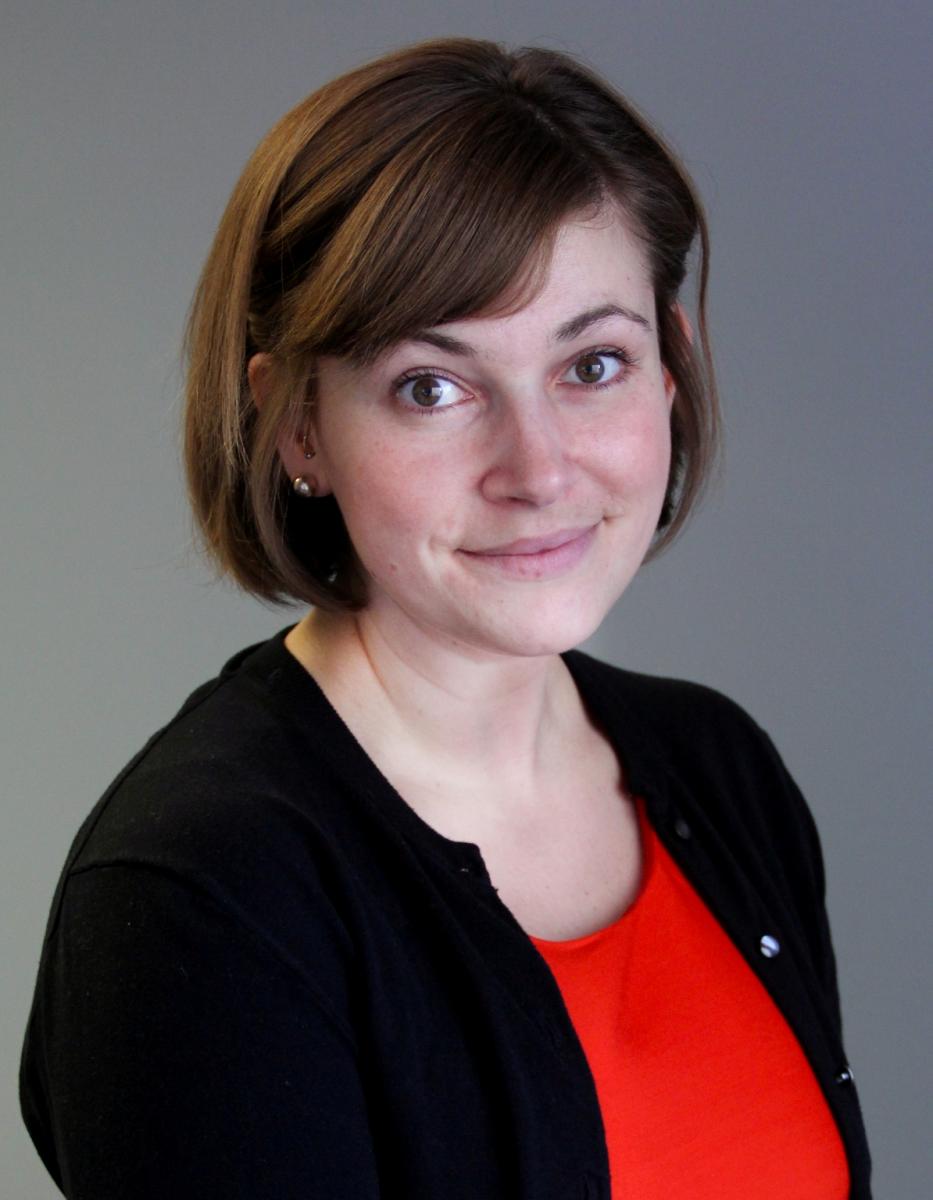 Augusta Featherston serves as the Youth Focal Point in the OSCE Office of Democratic Institutions and Human Rights (ODIHR). In this role Ms. Featherston develops and oversees ODIHR’s youth political participation portfolio, implementing activities designed to assist OSCE participating States meet their commitments in supporting the active participation of young people in promoting democracy, human rights, and fundamental freedoms. Prior to ODIHR, Ms. Featherston served as the technical lead on youth engagement at the International Foundation for Electoral Systems (IFES) advising on youth-specific program design, and other global youth initiatives. She also has extensive experience working with various youth-serving organizations supporting young people in underserved communities in the United States though innovative literacy, technology, and leadership development programs. Ms. Featherston holds an M.A. in international development from the Josef Korbel School of International Studies at the University of Denver.
Augusta Featherston serves as the Youth Focal Point in the OSCE Office of Democratic Institutions and Human Rights (ODIHR). In this role Ms. Featherston develops and oversees ODIHR’s youth political participation portfolio, implementing activities designed to assist OSCE participating States meet their commitments in supporting the active participation of young people in promoting democracy, human rights, and fundamental freedoms. Prior to ODIHR, Ms. Featherston served as the technical lead on youth engagement at the International Foundation for Electoral Systems (IFES) advising on youth-specific program design, and other global youth initiatives. She also has extensive experience working with various youth-serving organizations supporting young people in underserved communities in the United States though innovative literacy, technology, and leadership development programs. Ms. Featherston holds an M.A. in international development from the Josef Korbel School of International Studies at the University of Denver.
Participants:
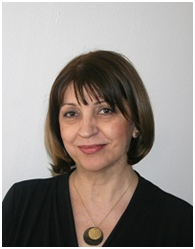 Irena Hadžiabdić has spent the past 19 years in the field of election management, first with the Organization for Security and Co-operation in Europe (OSCE), then as Executive Director of IFES in Bosnia and Herzegovina (BiH). She was also the Executive Director of the Association of Election Officials in BiH (AEOBiH). In 2007, she was appointed by the BiH Parliamentary Assembly as a member of the BiH Central Election Commission (BiH CEC). On April 27, 2016 she was reappointed member of the BiH CEC after expiry of the seven-year mandate, and she is serving as the President of the BiH CEC since January 1, 2017.
Irena Hadžiabdić has spent the past 19 years in the field of election management, first with the Organization for Security and Co-operation in Europe (OSCE), then as Executive Director of IFES in Bosnia and Herzegovina (BiH). She was also the Executive Director of the Association of Election Officials in BiH (AEOBiH). In 2007, she was appointed by the BiH Parliamentary Assembly as a member of the BiH Central Election Commission (BiH CEC). On April 27, 2016 she was reappointed member of the BiH CEC after expiry of the seven-year mandate, and she is serving as the President of the BiH CEC since January 1, 2017.
She represented the BiH CEC at the Executive Board of the Association of European Election Officials (ACEEEO) and at the Oversight and Audit Committee of the Association of World Election Bodies (A-WEB). She is currently member of the Board of Directors of the International Foundation for Electoral Systems (IFES). She has observed and assessed elections in 14 countries with OSCE’s Office for Democratic Institutions and Human Rights, the International Republican Institute and the National Democratic Institute. In 2013, she received an International Electoral Award for outstanding achievements in election management.
Irena Hadžiabdić graduated from the Belgrade Faculty of Law. She holds a M.S. in European Union Policy, Law and Management from Robert Gordon University, Aberdeen and a Ph.D. in Juridical Science from the Faculty of Law in Zenica.
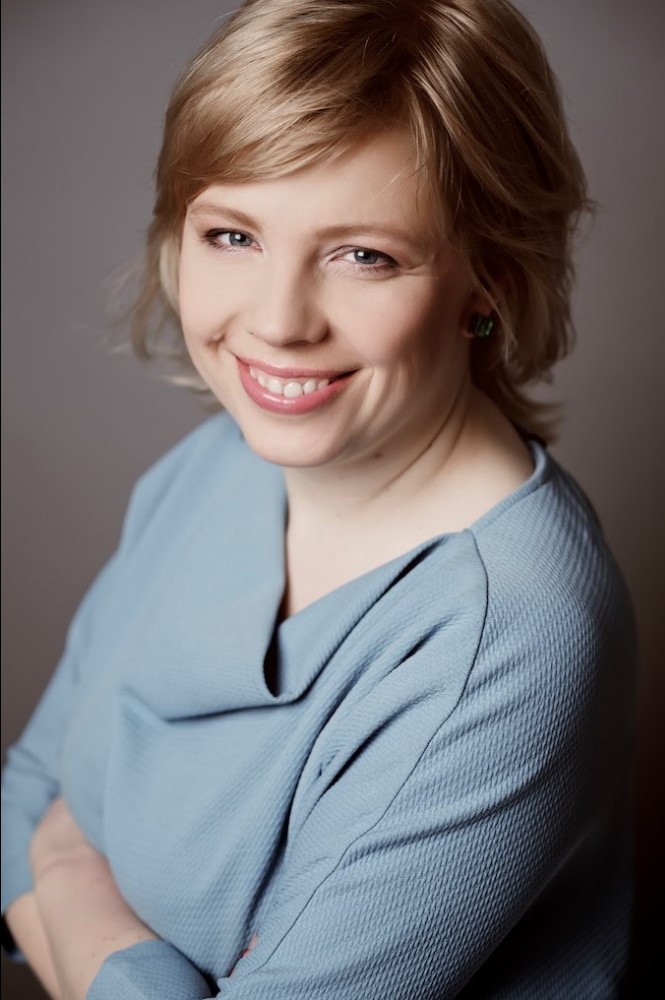 Ms. Berzina has been head of the Information Department of the CEC of Latvia since 2006, has been working for the CEC of Latvia since April 1998 as chairman’s assistant, press secretary and public relation manager. Ms. Berzina managed CEC public relation and voters’ education campaigns of six parliamentary elections, five local government elections, three European Parliament elections, eight referendums and several signature collection procedures. She has work experience in election administration, media relations, communication strategies, WEB content development, social media, special events management, training programmes for lower-level election commissions and youth.
Ms. Berzina has been head of the Information Department of the CEC of Latvia since 2006, has been working for the CEC of Latvia since April 1998 as chairman’s assistant, press secretary and public relation manager. Ms. Berzina managed CEC public relation and voters’ education campaigns of six parliamentary elections, five local government elections, three European Parliament elections, eight referendums and several signature collection procedures. She has work experience in election administration, media relations, communication strategies, WEB content development, social media, special events management, training programmes for lower-level election commissions and youth.
Ms. Berzina has observed elections and referendums in Croatia, Estonia, Georgia, Lithuania, Poland and United Kingdom, participated in international conferences and seminars as participant and speaker, has worked as communication expert at IPA 2010 Twinning Light Project “Strengthening the System of Supervision of Political Activities and Electoral Campaign Financing in the Republic of Croatia” in 2014 and participated in BRIDGE workshops in Hungary in 2011.
Ms. Berzina has the Master’s degree in communication science, and she is a member of the Associations of Public Relation Specialist of Latvia (LASAP) since 2005.
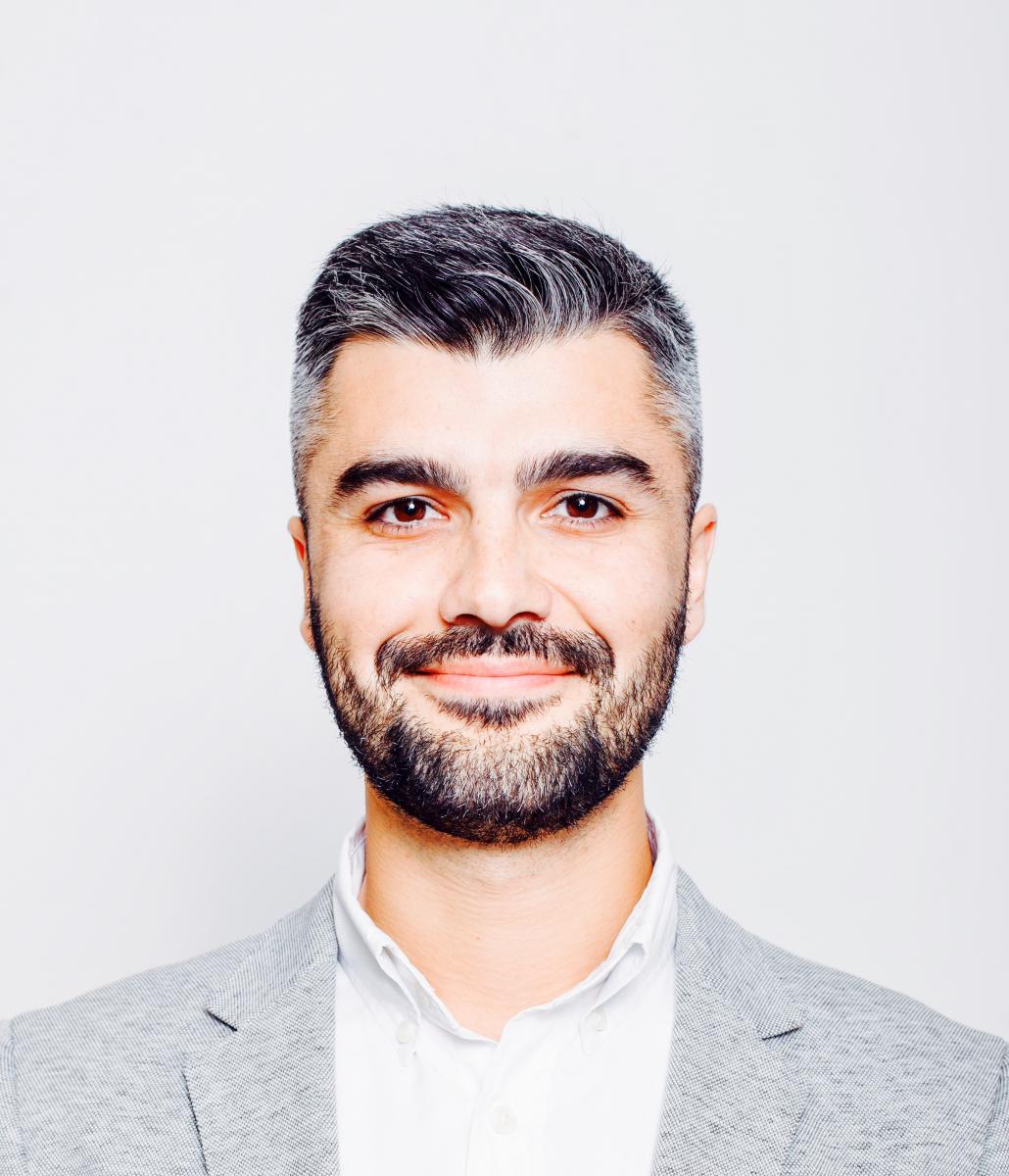 George (Gio) Kobakhidze is the Senior Operations and Civic Education Officer for the International Foundation for Electoral Systems (IFES), and has seven years of experience in the democracy and governance field, with postings in Washington, D.C., Tbilisi, Georgia, and Kyiv, Ukraine. In Georgia, Kobakhidze designed and managed IFES’ civic and voter education programming, which included support to civil society organizations working in this field, as well as the introduction of an interactive, university-level civic education course that is currently offered at the majority of accredited universities throughout the country.
George (Gio) Kobakhidze is the Senior Operations and Civic Education Officer for the International Foundation for Electoral Systems (IFES), and has seven years of experience in the democracy and governance field, with postings in Washington, D.C., Tbilisi, Georgia, and Kyiv, Ukraine. In Georgia, Kobakhidze designed and managed IFES’ civic and voter education programming, which included support to civil society organizations working in this field, as well as the introduction of an interactive, university-level civic education course that is currently offered at the majority of accredited universities throughout the country.
Kobakhidze is currently stationed with IFES in Ukraine, where he oversees the implementation of multiple projects designed to support the consolidation of Ukrainian democracy through more participatory, transparent, and accountable electoral processes and institutions. Key areas of programming include: technical assistance and support to electoral management bodies, political finance regulators, civil society, media, and academic institutions; fostering dialogue on electoral and political finance reform and implementation; enhancing inclusion in the electoral process for underrepresented and disenfranchised populations; and supporting informed citizen participation through and in between election cycles through civic and voter education. Presently, Kobakhidze is spearheading an initiative to introduce a university-level civic education course in Ukraine’s institutions of higher education; this initiative is part of an effort to strengthen the knowledge, skills, and dispositions that are associated with students’ effective democratic citizenship throughout the country. A native English spea
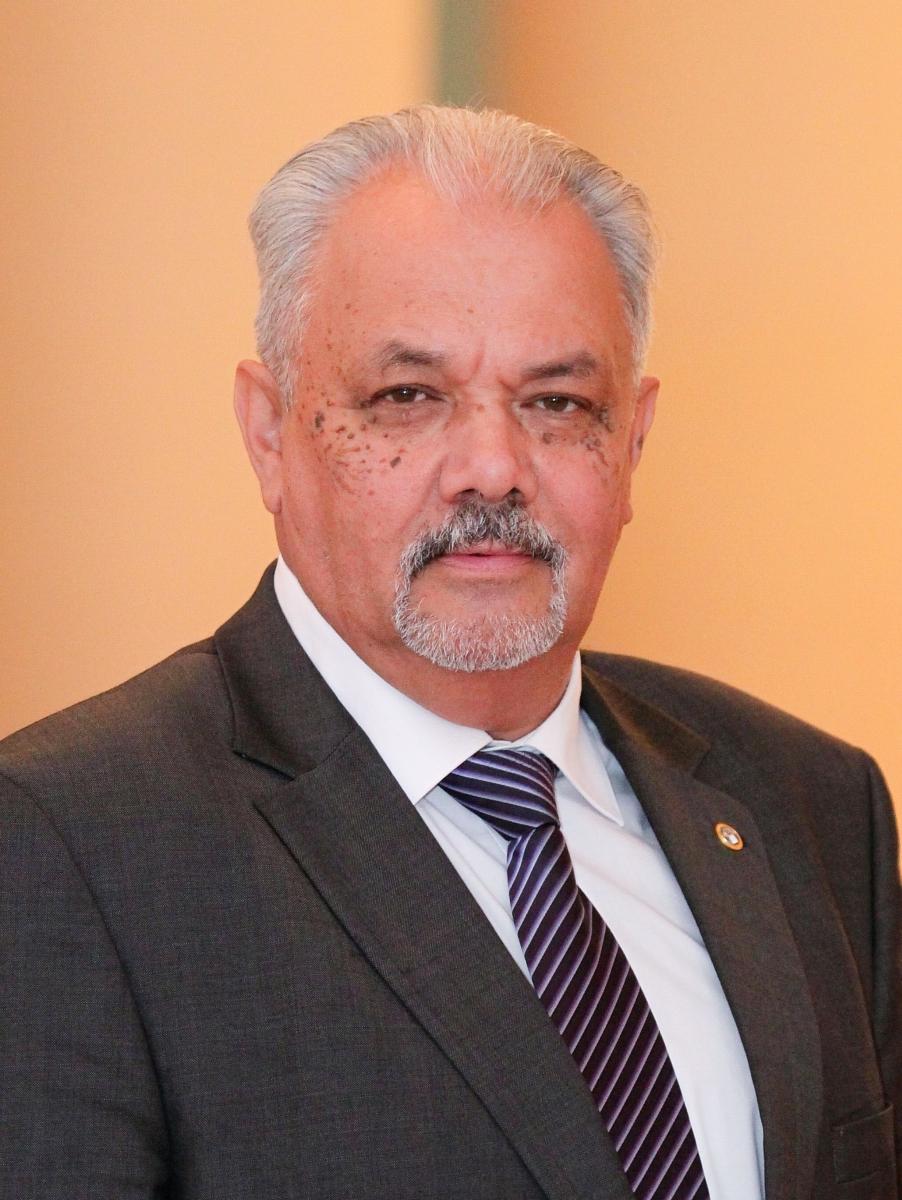 Mr. Dmitry Gladey graduated from V. I. Ulyanov (Lenin) Leningrad Electrotechnical Institute majoring in Electronic Equipment. In 1972-1985 worked in Komsomol and Communist Party chapters of Leningrad. In 1985-1992 performed teaching and administrative functions in St. Petersburg State University. In 1992-2005 worked as business manager in St. Petersburg. In 2005 Mr. Gladey took office and currently remains Deputy Head of IPA CIS Council Secretariat – Director of International Institute for the Monitoring of Democratic Development, Parliamentarism and Suffrage Protection of Citizens of IPA CIS Member Nations.
Mr. Dmitry Gladey graduated from V. I. Ulyanov (Lenin) Leningrad Electrotechnical Institute majoring in Electronic Equipment. In 1972-1985 worked in Komsomol and Communist Party chapters of Leningrad. In 1985-1992 performed teaching and administrative functions in St. Petersburg State University. In 1992-2005 worked as business manager in St. Petersburg. In 2005 Mr. Gladey took office and currently remains Deputy Head of IPA CIS Council Secretariat – Director of International Institute for the Monitoring of Democratic Development, Parliamentarism and Suffrage Protection of Citizens of IPA CIS Member Nations.
17.00 – 18.00 Roundtable discussion – Digital solutions for supporting the voter’s choice?
Moderator:
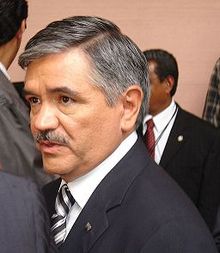 Leonardo Valdés was appointed President Councilor of the Federal Electoral Institute of Mexico (IFE) in February 2008. A PhD in Social Sciences with a specialization in Sociology from the Center for Sociological Studies of El Colegio de México. He was member of a Commission of Experts appointed by the General Council of the IFE in 1998 to study the options for the voting from abroad program. From 1999 to 2005 he served as Electoral Councilor for the Electoral Institute of Mexico City. He was also President of the Directive Board of the Mexican Association for Electoral Studies (SOMEE for its acronym in Spanish). He was a full-time professor in the Autonomous Metropolitan University in Mexico City, where he taught undergraduate courses on Political Science, graduate courses on Social Studies, and a diploma course on Electoral Studies. His publications include collective books on political and electoral topics. Some of his essays have been published in the United States, Brazil, Uruguay and Great Britain. He has been a member of the Researchers National System since 1993. He was professor at the Faculty of Law and Public Administration at the University of Guanajuato until January 2008.
Leonardo Valdés was appointed President Councilor of the Federal Electoral Institute of Mexico (IFE) in February 2008. A PhD in Social Sciences with a specialization in Sociology from the Center for Sociological Studies of El Colegio de México. He was member of a Commission of Experts appointed by the General Council of the IFE in 1998 to study the options for the voting from abroad program. From 1999 to 2005 he served as Electoral Councilor for the Electoral Institute of Mexico City. He was also President of the Directive Board of the Mexican Association for Electoral Studies (SOMEE for its acronym in Spanish). He was a full-time professor in the Autonomous Metropolitan University in Mexico City, where he taught undergraduate courses on Political Science, graduate courses on Social Studies, and a diploma course on Electoral Studies. His publications include collective books on political and electoral topics. Some of his essays have been published in the United States, Brazil, Uruguay and Great Britain. He has been a member of the Researchers National System since 1993. He was professor at the Faculty of Law and Public Administration at the University of Guanajuato until January 2008.
Participants:
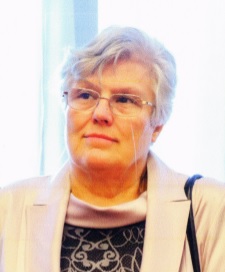 Lawyer of Sofia Bar Association since 1980.
Lawyer of Sofia Bar Association since 1980.
Member of the Council of Sofia Bar Association between 1983 and 1989; member of the Supreme Bar Council between 2005 and 2013; member of Sofia Municipal Council between 1991 and 2000.
Member of the Central Election Commission in 2001 for the presidential elections; in 2003 and 2007 – member of CEC for the local elections for members of municipal councils and mayors; 2005 and 2009 – member of CEC for the parliamentary elections; between 2001 and 2014, and since 2014 – member of the Central Election Commission as a permanent body.
Her electoral experience includes drafting of key decisions on the application of the Electoral Code, methodological instructive regulations for all election commissions as the master guide for elections, national and local referendums, decisions for application of the norms of existing electoral laws and the Electoral Code, for the training of members of all election and tabulation commissions.
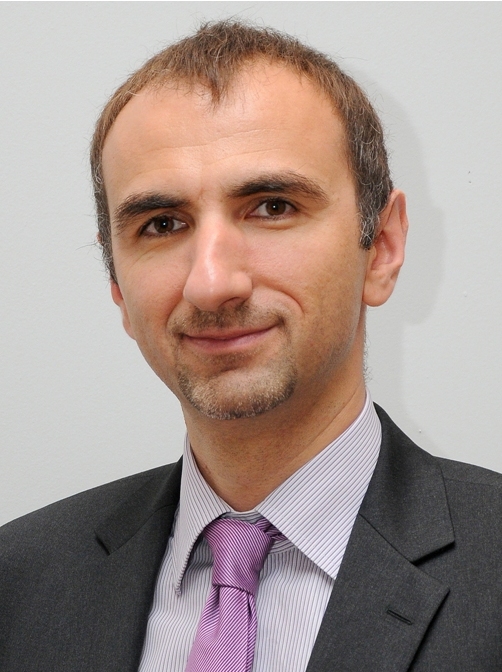 Dan Malinovich is an Electoral Assistance Specialist in the UNDP’s Bureau for Policy and Programme Support (BPPS) based in Brussels, serving as one of the two UNDP representatives on the EC-UNDP Joint Task Force on Electoral Assistance (JTF). He provides day-to-day support to the electoral projects world-wide and frequently participates in missions to assess the needs, formulate new projects and support the implementation of activities.
Dan Malinovich is an Electoral Assistance Specialist in the UNDP’s Bureau for Policy and Programme Support (BPPS) based in Brussels, serving as one of the two UNDP representatives on the EC-UNDP Joint Task Force on Electoral Assistance (JTF). He provides day-to-day support to the electoral projects world-wide and frequently participates in missions to assess the needs, formulate new projects and support the implementation of activities.
Prior to joining the UNDP Brussels office, he designed and managed projects promoting democratic governance in around 20 countries across Europe, Asia, Africa and Oceania.
Most recently he was based in the Maldives, where he managed a project supporting civil society and independent commissions.
From 2010 to 2012 he served as a Chief Technical Advisor for UNDP Kyrgyzstan providing support in organizing elections and a referendum after the overthrow of the president and inter-ethnic violence that followed.
From 2004 to 2009 he was based in Central Asia managing long and short-term project in Kyrgyzstan, Tajikistan, Turkmenistan and Kazakhstan particularly focusing on electoral assistance, legislative reform and civic education.
He was on the team organizing out-of-country elections in Afghanistan and also observed elections with OSCE-ODIHR in Macedonia, Georgia and the Netherlands.
In addition to native fluency in English and Serbo-Croatian, he speaks French and Russian. He holds a bachelor’s degree in history from Indiana University (Bloomington, Indiana, USA) and a master’s degree in international law (LL.M.) from the University of Kent-Brussels School of International Studies
19.00 – Dinner
9.30 – 12.00 Workshops
Including visiting the exhibition hall, coffee break
Workshop A - Is this our responsibility? The role of the electoral management bodies in making conscious voters
Moderator:
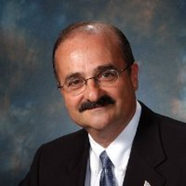 Mr. Paul DeGregorio served as commissioner of the United States Election Assistance Commission (EAC) from 2003-2007. During his tenure he served as chairman of the EAC and oversaw federal election reform, such as the implementation of the Help America Vote Act and the establishment of the first federal certification of voting systems and best practices in elections clearinghouse. Prior to the EAC, Mr. DeGregorio was Executive Vice President of the International Foundation for Election Systems (IFES) and he also was senior election adviser for IFES in many countries. He focused on new voting technologies and automation for out of country voters and voters with disabilities as Chief of Elections of Everyone Counts, Inc. Mr. DeGregorio has over 30 years of election experience and was Director of Elections for St. Louis County, Missouri, USA. He has provided technical assistance and has observed elections in more than 35 countries, including serving as Head of Mission for several OSCE/ODHIR election assessment missions and participating in election observation projects for AWEB and other organizations. Mr. DeGregorio is Senior Advisor to the Association of World Election Bodies and a Senior Fellow for the Democracy Fund. He is frequent lecturer and has authored numerous publications on elections, including serving on the Scientific Board of the Electoral Expert Review and Kids Voting. He has received numerous awards, including the Freedom Award from the National Association of Secretaries of State, and was appointed a lifetime member of the Association of European Election Officials (ACEEEO) and the International Association of Government Officials (iGO). A graduate of the University of Missouri with a B.A. in Political Science, Mr. DeGregorio was honored by his alma mater with the Distinguished Alumni Award.
Mr. Paul DeGregorio served as commissioner of the United States Election Assistance Commission (EAC) from 2003-2007. During his tenure he served as chairman of the EAC and oversaw federal election reform, such as the implementation of the Help America Vote Act and the establishment of the first federal certification of voting systems and best practices in elections clearinghouse. Prior to the EAC, Mr. DeGregorio was Executive Vice President of the International Foundation for Election Systems (IFES) and he also was senior election adviser for IFES in many countries. He focused on new voting technologies and automation for out of country voters and voters with disabilities as Chief of Elections of Everyone Counts, Inc. Mr. DeGregorio has over 30 years of election experience and was Director of Elections for St. Louis County, Missouri, USA. He has provided technical assistance and has observed elections in more than 35 countries, including serving as Head of Mission for several OSCE/ODHIR election assessment missions and participating in election observation projects for AWEB and other organizations. Mr. DeGregorio is Senior Advisor to the Association of World Election Bodies and a Senior Fellow for the Democracy Fund. He is frequent lecturer and has authored numerous publications on elections, including serving on the Scientific Board of the Electoral Expert Review and Kids Voting. He has received numerous awards, including the Freedom Award from the National Association of Secretaries of State, and was appointed a lifetime member of the Association of European Election Officials (ACEEEO) and the International Association of Government Officials (iGO). A graduate of the University of Missouri with a B.A. in Political Science, Mr. DeGregorio was honored by his alma mater with the Distinguished Alumni Award.
Speakers:
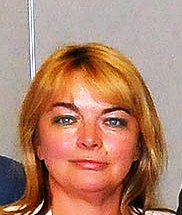 Mariya Musorlieva has a degree from the Faculty of Law of Sofia University “St. Kliment Ohridski”, as well as in Theory and History of Art at the Faculty of History of the same University. She has been a member of the Sofia Bar Association since 1992 to date. She is a member of the Managing board of the Association of German-speaking Lawyers in Bulgaria. She has been a member for two terms of the Lawyers Council of Republic of Bulgaria – Higher Disciplinary Court. She has a specialization in Civil Law in Germany, as well as a specialization in political medication. She was a Secretary in Chief of the Bulgarian League of Human Rights Protection, accredited through its International Federation with the UN and the Council of Europe. Deputy-Chair of the Central Election Commission for two subsequent terms, from 2011-2014 and from 2014 to date. International monitor at many elections held in Europe and Asia.
Mariya Musorlieva has a degree from the Faculty of Law of Sofia University “St. Kliment Ohridski”, as well as in Theory and History of Art at the Faculty of History of the same University. She has been a member of the Sofia Bar Association since 1992 to date. She is a member of the Managing board of the Association of German-speaking Lawyers in Bulgaria. She has been a member for two terms of the Lawyers Council of Republic of Bulgaria – Higher Disciplinary Court. She has a specialization in Civil Law in Germany, as well as a specialization in political medication. She was a Secretary in Chief of the Bulgarian League of Human Rights Protection, accredited through its International Federation with the UN and the Council of Europe. Deputy-Chair of the Central Election Commission for two subsequent terms, from 2011-2014 and from 2014 to date. International monitor at many elections held in Europe and Asia.
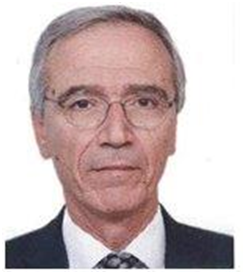 Hisham Kuhail is an architect who obtained his Bachelor of degree in Architecture from Alexandria University in Egypt in 1977 and his Master of philosophy degree from the University of Newcastle in the UK in 1986. Previously held the positions of Dean of Palestine Polytechnic University and Assistant undersecretary at the Ministry of Education and Higher Education from 1994 to 2006. Assumed CEO position at the CEC's in August 2006. Very active in promoting and sharing CEC's experience regionally and internationally. Currently a member of the Executive Board of the Organisation of Arab Electoral Management Bodies (Arab EMBs).
Hisham Kuhail is an architect who obtained his Bachelor of degree in Architecture from Alexandria University in Egypt in 1977 and his Master of philosophy degree from the University of Newcastle in the UK in 1986. Previously held the positions of Dean of Palestine Polytechnic University and Assistant undersecretary at the Ministry of Education and Higher Education from 1994 to 2006. Assumed CEO position at the CEC's in August 2006. Very active in promoting and sharing CEC's experience regionally and internationally. Currently a member of the Executive Board of the Organisation of Arab Electoral Management Bodies (Arab EMBs).
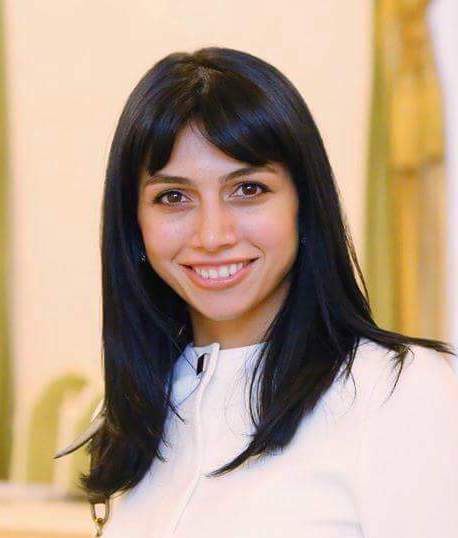 Electoral expert, democracy, human rights and governance professional with 8 years of experience in foreign relations, public policy, public relations and election administration. Held position of Head of the Foreign Relations Department of the Central Electoral Commission of Armenia for more than 8 years.
Electoral expert, democracy, human rights and governance professional with 8 years of experience in foreign relations, public policy, public relations and election administration. Held position of Head of the Foreign Relations Department of the Central Electoral Commission of Armenia for more than 8 years.
Design and deliver trainings for over 5,000 CSO members and poll workers to improve the administration of elections, strengthen civil society, and increase transparency and government accountability.
International observer for OSCE/ODIHR and other international observation missions in Europe and Eurasia.
Trainer of the Qualification Improvement and Research Activities Department at State Public Administration Academy of the RA.
PHD student in Public Policy at State Public Administration Academy of Armenia.
Workshop B - Should electoral campaigns be regulated? Theoretical and practical aspects of a restricted political area
Moderator:
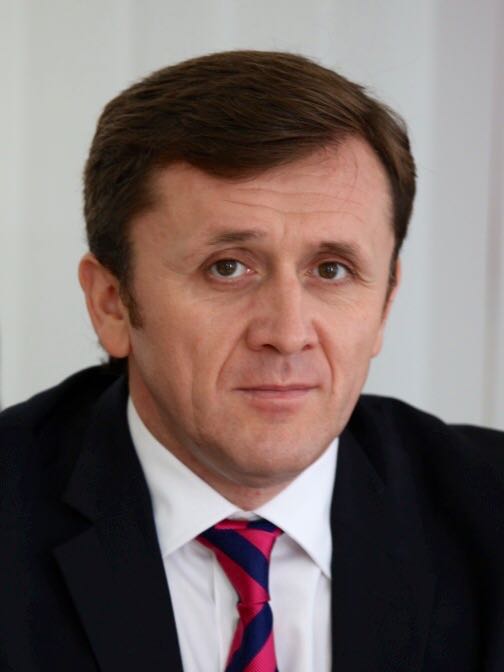 19 may 1971
19 may 1971
Married, 2 children
Studies:
1994 Technical University of Moldova, Urbanism and Architecture
1999 Master's Academy of Public Administration
2007 Ph.D. in political science
2008 State University of Moldova, licensed the low
Professional experience:
from 1999, university lecturer
from 2003, member of the Central Election Commission of Moldova
2005 - 2011 the Secretary of CEC
from 2006, Member of Coordination Committee of the joint European Commission and the Council of Europe to combat corruption
from 2007 - Currently, member of Coordination Committee Project of the Government of the Republic of Moldova and UNDP 'Building Electronic Governance in Moldova'
2011 - 2016 President of Central Electoral Commission of Republic of Moldova
from January 2017, Government, Office of Prime Minister, Head of the Center for Reform Implementation
Speakers:
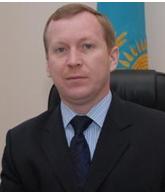 Born on 18 June 1969 in the city of Aktobe.
Born on 18 June 1969 in the city of Aktobe.
In 1991 he graduated from Aktobe Pedagogical Institute named after K. Zhubanov.
Work experience:
1991-2004 - chemistry and biology teacher, deputy director of the secondary school No. of Aktobe city, deputy head of the department for organizational and personnel work, the assistant to akim of Aktobe city, deputy chief of the department for administrative and economic activity and improvement of the Aktobe ferroalloy plant;
08.2004-04.2008 – assistant to Akim of Aktobe oblast;
04.2008-01.2009 - head of internal policy department of Aktobe oblast;
01.2009-24.08.2015 - Chief of Staff of Akim of Aktobe oblast;
24.08.2015-09.2016 - State Inspector of the Department for state control and organizational-territorial operation of the Administration of the President of the Republic of Kazakhstan;
By the Decree of the President of the Republic of Kazakhstan of 30 September
2016 has been appointed as a member of the Central Election Commission of the Republic of Kazakhstan.
Marital status: married, two children.
Awards: Order "Kurmet" (2011).
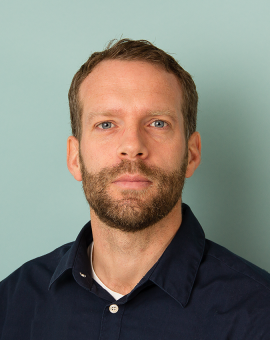 Samuel Jones is a Programme Officer with International IDEA’s Political Parties, Representation and Participation Programme and works primarily on the topic of money in politics. Samuel has written and presented extensively on the topic of money in politics and is the author of Digital Solutions for Political Finance Reporting and Disclosure: A Practical Guide. He is also the co-editor of International IDEA’s Funding of Political Parties and Election Campaigns: A Handbook on Political Finance. Samuel’s in-country experience working on political finance includes time spent in Kyrgyzstan, Tunisia, Nepal, Georgia, Moldova, Albania and India, where he drafted the New Delhi Declaration on Political Finance Regulation in South Asia. Previously, Samuel worked with International IDEA’s Democracy and Development Programme on projects related to programmatic political parties and democratic accountability. He has also worked with ACE: The Electoral Knowledge Network.
Samuel Jones is a Programme Officer with International IDEA’s Political Parties, Representation and Participation Programme and works primarily on the topic of money in politics. Samuel has written and presented extensively on the topic of money in politics and is the author of Digital Solutions for Political Finance Reporting and Disclosure: A Practical Guide. He is also the co-editor of International IDEA’s Funding of Political Parties and Election Campaigns: A Handbook on Political Finance. Samuel’s in-country experience working on political finance includes time spent in Kyrgyzstan, Tunisia, Nepal, Georgia, Moldova, Albania and India, where he drafted the New Delhi Declaration on Political Finance Regulation in South Asia. Previously, Samuel worked with International IDEA’s Democracy and Development Programme on projects related to programmatic political parties and democratic accountability. He has also worked with ACE: The Electoral Knowledge Network.
Prior to International IDEA, Samuel worked for a Swedish political party foundation. He also has field experience from Nepal and Palestine, where he worked for The Carter Center and the World Council of Churches, respectively. He holds a Masters degree in International Relations from the University of Warwick and a Bachelors degree in History from the University of Nottingham, both in the UK.
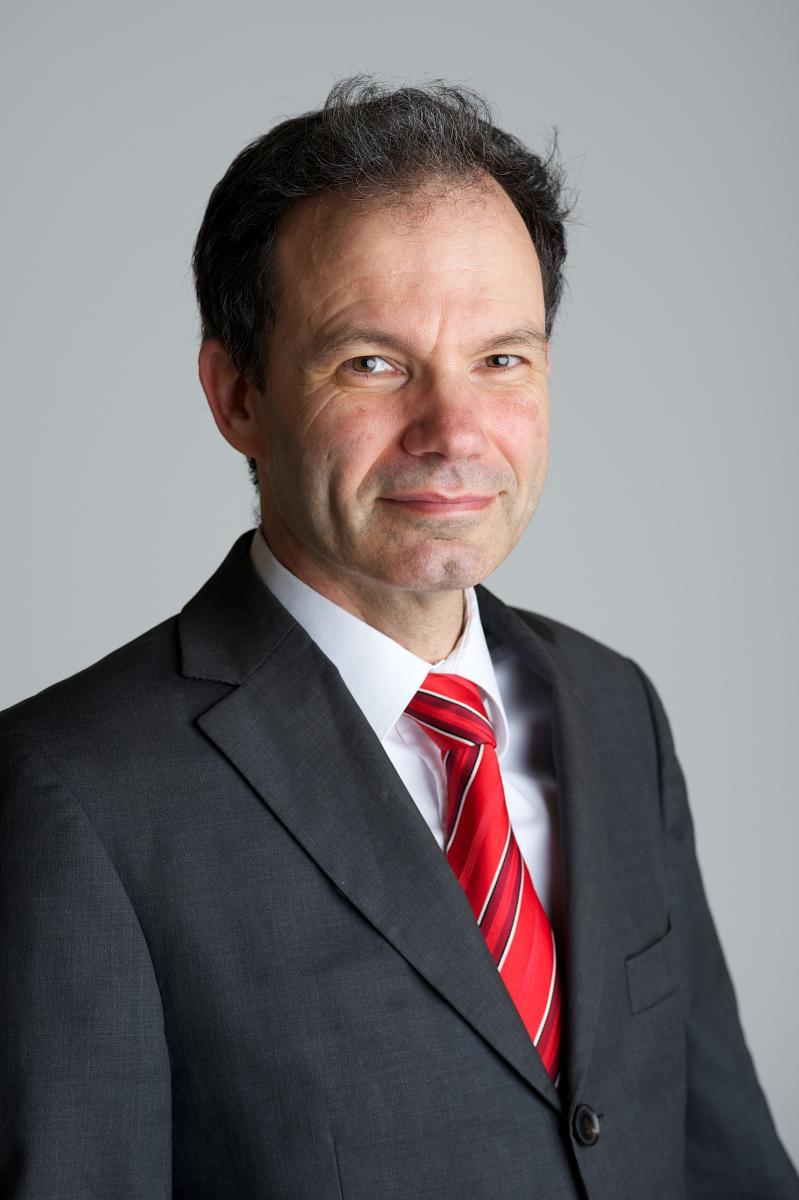 Pierre Garrone is head of the Division of elections and political parties at the secretariat of the Venice Commission (Council of Europe), PhD (Geneva University), Master of Advanced European Studies (College of Europe), avocat (Switzerland). He was inter alia strongly involved in the drafting of two reference documents of the Council of Europe elaborated by the Venice Commission: the Code of Good Practice in Electoral Matters and the Rule of Law Checklist. His publications address in particular the following issues: the Venice Commission; law of elections and political parties; comparative and Swiss constitutional law; European Union law – the freedoms of the European single market.
Pierre Garrone is head of the Division of elections and political parties at the secretariat of the Venice Commission (Council of Europe), PhD (Geneva University), Master of Advanced European Studies (College of Europe), avocat (Switzerland). He was inter alia strongly involved in the drafting of two reference documents of the Council of Europe elaborated by the Venice Commission: the Code of Good Practice in Electoral Matters and the Rule of Law Checklist. His publications address in particular the following issues: the Venice Commission; law of elections and political parties; comparative and Swiss constitutional law; European Union law – the freedoms of the European single market.
12.00 – 13.00 Lunch
13.00 – 14.00 Best practices from the world of elections 2017
Chair:
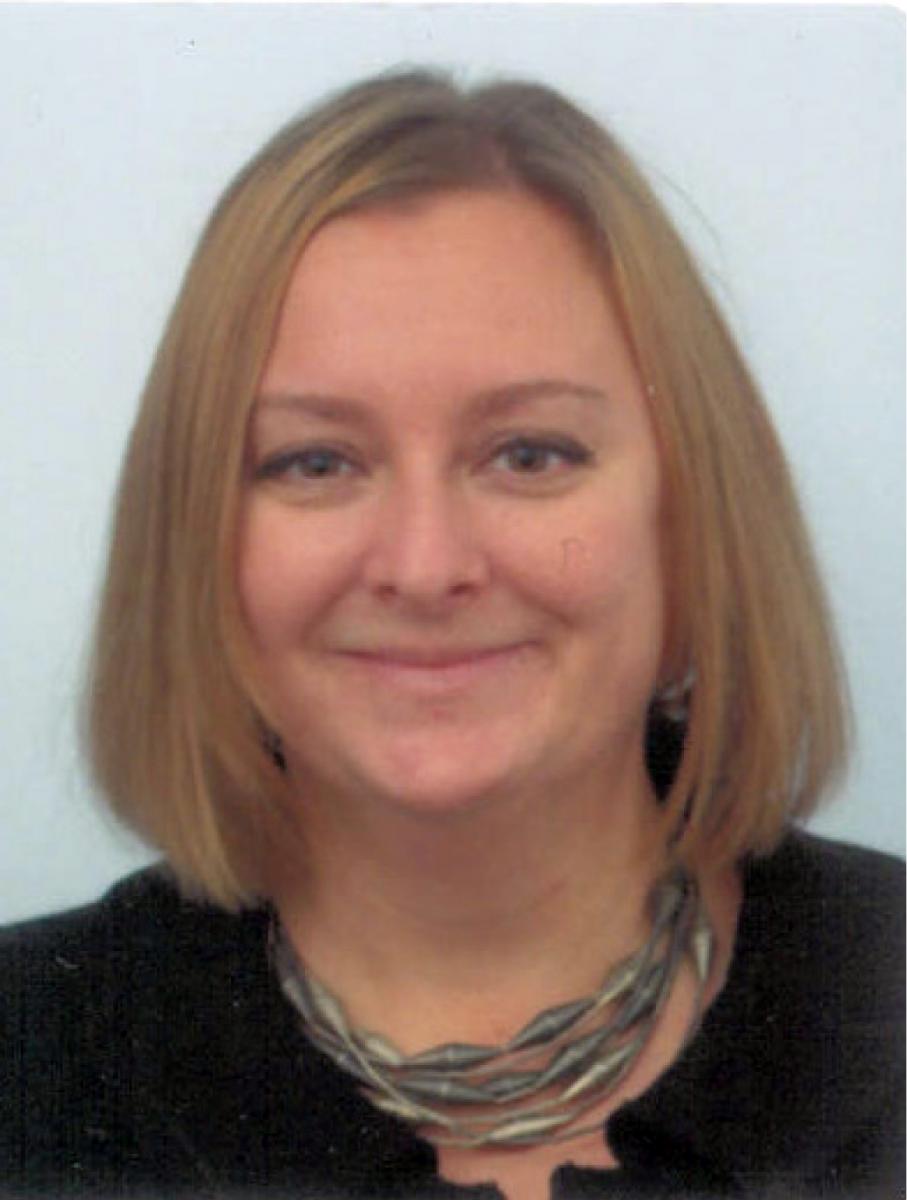 Dr. Beata Martin-Rozumiłowicz is currently the Director for Europe and Eurasia at the International Foundation for Electoral Systems (IFES). Before starting in February 2016, she headed the Organization for Security and Co-operation in Europe’s Office for Democratic Institutions and Human Rights (OSCE/ODHIR) Election Department in Warsaw, Poland since 2011 and previously served as its Deputy from 2009 to 2011.
Dr. Beata Martin-Rozumiłowicz is currently the Director for Europe and Eurasia at the International Foundation for Electoral Systems (IFES). Before starting in February 2016, she headed the Organization for Security and Co-operation in Europe’s Office for Democratic Institutions and Human Rights (OSCE/ODHIR) Election Department in Warsaw, Poland since 2011 and previously served as its Deputy from 2009 to 2011.
From 2005 to 2009, she worked on dozens of OSCE/ODIHR election observation missions across the 57 OSCE participating states as Deputy Head of Mission or as Political Analyst, including in Albania, Belarus, Bosnia and Herzegovina, Kazakhstan, Kyrgyzstan, Montenegro, the Russian Federation, and Ukraine.
In 2005, she served as Election Adviser to the OSCE Centre in Bishkek, Kyrgyzstan and from 2003 to 2005 was Political/Media Officer at the OSCE Centre in Almaty, Kazakhstan. From 2000 to 2002, Beata acted as Human Dimension Officer at the OSCE’s Advisory and Monitoring Group in Minsk, Belarus. She has also previously consulted for IFES in Armenia and Kyrgyzstan on various aspects of electoral reform. During the course of her work and travels, Beata has visited more than 75 countries around the world.
Beata holds a D.Phil. (Ph.D.) and M.Phil. (Masters) in politics from the University of Oxford, United Kingdom and a B.A. in political science from Rutgers College (Phi Beta Kappa). She has specialized in political party and electoral development in post-communist countries, Latin American transitions, and political theory.
From 1999-2000, she was research fellow for Oxford’s Programme in Comparative Media Law and Policy, publishing a book on media law reform in transitional democracies. She has also published various articles on political party and electoral development, election observation, media freedom, and political party and campaign finance issues.
Speakers:
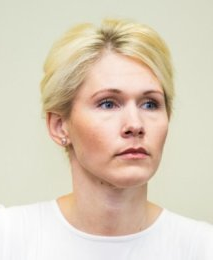 Ms. Matjošaitytė has been a Chairwoman of the Central Electoral Commission of the Republic of Lithuania since June 2017. Before that she was Deputy Chair since 2013 and served as a Member of the Commission since 2012. Since February 2016, Ms. Matjošaitytė vorks also as a Lecturer at Mykolas Romeris University and teaches Constitutional law. She has been Lawyer since 2007.
Ms. Matjošaitytė has been a Chairwoman of the Central Electoral Commission of the Republic of Lithuania since June 2017. Before that she was Deputy Chair since 2013 and served as a Member of the Commission since 2012. Since February 2016, Ms. Matjošaitytė vorks also as a Lecturer at Mykolas Romeris University and teaches Constitutional law. She has been Lawyer since 2007.
 19 may 1971
19 may 1971
Married, 2 children
Studies:
1994 Technical University of Moldova, Urbanism and Architecture
1999 Master's Academy of Public Administration
2007 Ph.D. in political science
2008 State University of Moldova, licensed the low
Professional experience:
from 1999, university lecturer
from 2003, member of the Central Election Commission of Moldova
2005 - 2011 the Secretary of CEC
from 2006, Member of Coordination Committee of the joint European Commission and the Council of Europe to combat corruption
from 2007 - Currently, member of Coordination Committee Project of the Government of the Republic of Moldova and UNDP 'Building Electronic Governance in Moldova'
2011 - 2016 President of Central Electoral Commission of Republic of Moldova
from January 2017, Government, Office of Prime Minister, Head of the Center for Reform Implementation
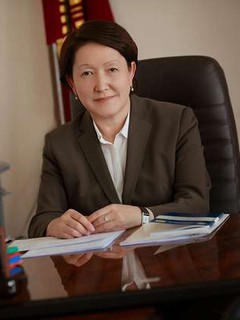 She was born on September 12, 1968 in the village of Luxemburg, Issyk-Ata rayon of the Chui oblast. In 1990 she graduated from the Department of History of the Kyrgyz National University. In 2004 she graduated from the Law Faculty of the Kyrgyz National University, in the same year she graduated from the Diplomatic Academy of the Ministry of Foreign Affairs of the Kyrgyz Republic.
She was born on September 12, 1968 in the village of Luxemburg, Issyk-Ata rayon of the Chui oblast. In 1990 she graduated from the Department of History of the Kyrgyz National University. In 2004 she graduated from the Law Faculty of the Kyrgyz National University, in the same year she graduated from the Diplomatic Academy of the Ministry of Foreign Affairs of the Kyrgyz Republic.
Work experience:
1992-1994 - Post-graduate student of the Institute of Politics and Economics of the National Academy of Sciences of the Kyrgyz Republic.
1997-2004 - Head of the Expert Group, Head of the Department of the Committee on International and Inter-Parliamentary Relations of the Jogorku Kenesh of the Kyrgyz Republic.
2006-2007 - Head of the International Relations and Extradition Division of the Prosecutor General's Office of the Kyrgyz Republic.
2010-2012 - Head of the Group for Coordination of Legislative Activities of the Government of the Kyrgyz Republic.
2012 - 2015 - Deputy Head of the Department of Legal Support of the Office of the President of the Kyrgyz Republic.
14.00 – 15.00 Recapitulation speeches, conference findings. Official closing of the 26th Conference
Chair:
 Zsolt Szolnoki currently serves as Secretary General for the Association of the European Election Officials on a voluntarily basis, providing leadership to the Secretariat’s work. He manages the annual conferences, supervises the projects’ preparations, the agendas for the Executive Board and the General Assembly meetings. His areas of expertise include planning for the elections, e-voting, election observations and supervisions, project management and design. He started to work for the ACEEEO in 1995, when he organized the annual conference in Siófok, Hungary. Since this year, he organized and attended all ACEEEO annual conference and Executive Board meeting. At the end of the nineties, he prepared several large observation missions to the Balkan region. In 2000, he worked for the OSCE Mission to Kosovo providing expertise for the preparatory work of the first election in Kosovo. He represented the ACEEEO as an international expert in many conferences and seminars. In his professional capacity between 1993 and 2002 he worked for the Hungarian National Election Office as the Deputy Head of the Election Department. From 2002 to 2005 he served as Head of IT department in the Ministry of Interior. From 2006 till November 2010 he worked for the European Commission as a Seconded National Expert on the area of Home Affairs. In 2011 he was the Chairman of a working group in the Hungarian EU Presidency team. Currently he is a high counselor in the Ministry of Interior of Hungary. He holds a B.A in Public Administration and completed a post graduate course in Business Management.
Zsolt Szolnoki currently serves as Secretary General for the Association of the European Election Officials on a voluntarily basis, providing leadership to the Secretariat’s work. He manages the annual conferences, supervises the projects’ preparations, the agendas for the Executive Board and the General Assembly meetings. His areas of expertise include planning for the elections, e-voting, election observations and supervisions, project management and design. He started to work for the ACEEEO in 1995, when he organized the annual conference in Siófok, Hungary. Since this year, he organized and attended all ACEEEO annual conference and Executive Board meeting. At the end of the nineties, he prepared several large observation missions to the Balkan region. In 2000, he worked for the OSCE Mission to Kosovo providing expertise for the preparatory work of the first election in Kosovo. He represented the ACEEEO as an international expert in many conferences and seminars. In his professional capacity between 1993 and 2002 he worked for the Hungarian National Election Office as the Deputy Head of the Election Department. From 2002 to 2005 he served as Head of IT department in the Ministry of Interior. From 2006 till November 2010 he worked for the European Commission as a Seconded National Expert on the area of Home Affairs. In 2011 he was the Chairman of a working group in the Hungarian EU Presidency team. Currently he is a high counselor in the Ministry of Interior of Hungary. He holds a B.A in Public Administration and completed a post graduate course in Business Management.
Speakers:
 Augusta Featherston serves as the Youth Focal Point in the OSCE Office of Democratic Institutions and Human Rights (ODIHR). In this role Ms. Featherston develops and oversees ODIHR’s youth political participation portfolio, implementing activities designed to assist OSCE participating States meet their commitments in supporting the active participation of young people in promoting democracy, human rights, and fundamental freedoms. Prior to ODIHR, Ms. Featherston served as the technical lead on youth engagement at the International Foundation for Electoral Systems (IFES) advising on youth-specific program design, and other global youth initiatives. She also has extensive experience working with various youth-serving organizations supporting young people in underserved communities in the United States though innovative literacy, technology, and leadership development programs. Ms. Featherston holds an M.A. in international development from the Josef Korbel School of International Studies at the University of Denver.
Augusta Featherston serves as the Youth Focal Point in the OSCE Office of Democratic Institutions and Human Rights (ODIHR). In this role Ms. Featherston develops and oversees ODIHR’s youth political participation portfolio, implementing activities designed to assist OSCE participating States meet their commitments in supporting the active participation of young people in promoting democracy, human rights, and fundamental freedoms. Prior to ODIHR, Ms. Featherston served as the technical lead on youth engagement at the International Foundation for Electoral Systems (IFES) advising on youth-specific program design, and other global youth initiatives. She also has extensive experience working with various youth-serving organizations supporting young people in underserved communities in the United States though innovative literacy, technology, and leadership development programs. Ms. Featherston holds an M.A. in international development from the Josef Korbel School of International Studies at the University of Denver.
 Leonardo Valdés was appointed President Councilor of the Federal Electoral Institute of Mexico (IFE) in February 2008. A PhD in Social Sciences with a specialization in Sociology from the Center for Sociological Studies of El Colegio de México. He was member of a Commission of Experts appointed by the General Council of the IFE in 1998 to study the options for the voting from abroad program. From 1999 to 2005 he served as Electoral Councilor for the Electoral Institute of Mexico City. He was also President of the Directive Board of the Mexican Association for Electoral Studies (SOMEE for its acronym in Spanish). He was a full-time professor in the Autonomous Metropolitan University in Mexico City, where he taught undergraduate courses on Political Science, graduate courses on Social Studies, and a diploma course on Electoral Studies. His publications include collective books on political and electoral topics. Some of his essays have been published in the United States, Brazil, Uruguay and Great Britain. He has been a member of the Researchers National System since 1993. He was professor at the Faculty of Law and Public Administration at the University of Guanajuato until January 2008.
Leonardo Valdés was appointed President Councilor of the Federal Electoral Institute of Mexico (IFE) in February 2008. A PhD in Social Sciences with a specialization in Sociology from the Center for Sociological Studies of El Colegio de México. He was member of a Commission of Experts appointed by the General Council of the IFE in 1998 to study the options for the voting from abroad program. From 1999 to 2005 he served as Electoral Councilor for the Electoral Institute of Mexico City. He was also President of the Directive Board of the Mexican Association for Electoral Studies (SOMEE for its acronym in Spanish). He was a full-time professor in the Autonomous Metropolitan University in Mexico City, where he taught undergraduate courses on Political Science, graduate courses on Social Studies, and a diploma course on Electoral Studies. His publications include collective books on political and electoral topics. Some of his essays have been published in the United States, Brazil, Uruguay and Great Britain. He has been a member of the Researchers National System since 1993. He was professor at the Faculty of Law and Public Administration at the University of Guanajuato until January 2008.
 Mr. Paul DeGregorio served as commissioner of the United States Election Assistance Commission (EAC) from 2003-2007. During his tenure he served as chairman of the EAC and oversaw federal election reform, such as the implementation of the Help America Vote Act and the establishment of the first federal certification of voting systems and best practices in elections clearinghouse. Prior to the EAC, Mr. DeGregorio was Executive Vice President of the International Foundation for Election Systems (IFES) and he also was senior election adviser for IFES in many countries. He focused on new voting technologies and automation for out of country voters and voters with disabilities as Chief of Elections of Everyone Counts, Inc. Mr. DeGregorio has over 30 years of election experience and was Director of Elections for St. Louis County, Missouri, USA. He has provided technical assistance and has observed elections in more than 35 countries, including serving as Head of Mission for several OSCE/ODHIR election assessment missions and participating in election observation projects for AWEB and other organizations. Mr. DeGregorio is Senior Advisor to the Association of World Election Bodies and a Senior Fellow for the Democracy Fund. He is frequent lecturer and has authored numerous publications on elections, including serving on the Scientific Board of the Electoral Expert Review and Kids Voting. He has received numerous awards, including the Freedom Award from the National Association of Secretaries of State, and was appointed a lifetime member of the Association of European Election Officials (ACEEEO) and the International Association of Government Officials (iGO). A graduate of the University of Missouri with a B.A. in Political Science, Mr. DeGregorio was honored by his alma mater with the Distinguished Alumni Award.
Mr. Paul DeGregorio served as commissioner of the United States Election Assistance Commission (EAC) from 2003-2007. During his tenure he served as chairman of the EAC and oversaw federal election reform, such as the implementation of the Help America Vote Act and the establishment of the first federal certification of voting systems and best practices in elections clearinghouse. Prior to the EAC, Mr. DeGregorio was Executive Vice President of the International Foundation for Election Systems (IFES) and he also was senior election adviser for IFES in many countries. He focused on new voting technologies and automation for out of country voters and voters with disabilities as Chief of Elections of Everyone Counts, Inc. Mr. DeGregorio has over 30 years of election experience and was Director of Elections for St. Louis County, Missouri, USA. He has provided technical assistance and has observed elections in more than 35 countries, including serving as Head of Mission for several OSCE/ODHIR election assessment missions and participating in election observation projects for AWEB and other organizations. Mr. DeGregorio is Senior Advisor to the Association of World Election Bodies and a Senior Fellow for the Democracy Fund. He is frequent lecturer and has authored numerous publications on elections, including serving on the Scientific Board of the Electoral Expert Review and Kids Voting. He has received numerous awards, including the Freedom Award from the National Association of Secretaries of State, and was appointed a lifetime member of the Association of European Election Officials (ACEEEO) and the International Association of Government Officials (iGO). A graduate of the University of Missouri with a B.A. in Political Science, Mr. DeGregorio was honored by his alma mater with the Distinguished Alumni Award.
 19 may 1971
19 may 1971
Married, 2 children
Studies:
1994 Technical University of Moldova, Urbanism and Architecture
1999 Master's Academy of Public Administration
2007 Ph.D. in political science
2008 State University of Moldova, licensed the low
Professional experience:
from 1999, university lecturer
from 2003, member of the Central Election Commission of Moldova
2005 - 2011 the Secretary of CEC
from 2006, Member of Coordination Committee of the joint European Commission and the Council of Europe to combat corruption
from 2007 - Currently, member of Coordination Committee Project of the Government of the Republic of Moldova and UNDP 'Building Electronic Governance in Moldova'
2011 - 2016 President of Central Electoral Commission of Republic of Moldova
from January 2017, Government, Office of Prime Minister, Head of the Center for Reform Implementation
 Mrs. Robinson has been a Chair of the Central Election Commission (CEC) since March 2014. Before that she was Executive Director of the Institute of Modern Politics – a non-profit organization, which works in the field of monitoring the legislation according to the principles of transparency, publicity, accountability and civil participation in decision making. She was an advisor to the Minister of Emergency Situations; a lawyer; a member of the CEC (2005). Her professional experience includes advising NGOs working in the field of human rights protection and good governance. Mrs. Robinson is an author of analyzes and proposals for new/ amendments of the electoral legislation. She participated in Civil Councils to the Parliament Committees for the preparation of the Election Code now in force; in round tables and discussions on electoral matters; in preparation of statements on conducting of the presidential elections 2011 for Constitutional Court cases and others. At present Mrs. Robinson is a President of the Association of European Election Officials (ACEEEO).
Mrs. Robinson has been a Chair of the Central Election Commission (CEC) since March 2014. Before that she was Executive Director of the Institute of Modern Politics – a non-profit organization, which works in the field of monitoring the legislation according to the principles of transparency, publicity, accountability and civil participation in decision making. She was an advisor to the Minister of Emergency Situations; a lawyer; a member of the CEC (2005). Her professional experience includes advising NGOs working in the field of human rights protection and good governance. Mrs. Robinson is an author of analyzes and proposals for new/ amendments of the electoral legislation. She participated in Civil Councils to the Parliament Committees for the preparation of the Election Code now in force; in round tables and discussions on electoral matters; in preparation of statements on conducting of the presidential elections 2011 for Constitutional Court cases and others. At present Mrs. Robinson is a President of the Association of European Election Officials (ACEEEO).
16.00 – Cultural program, dinner
The participants of the 26th Annual Conference of the Association of European Election Officials (also known as ACEEEO) emphasize that in any sustainable democracy voters should make decisions at the ballot box based on sufficient and accurate information. The strength of democracy depends upon accurate and unbiased sources of information and not on so-called “fake news”. We reiterate that strong voter turnout is also needed to ensure the legitimacy of the democratic system.
The participants of the conference recognize that the continuing developments in information technology and social media require that the state be more than a bystander: The active participation of government at all levels is needed to encourage participation. Nevertheless, the participants also recognize the threat of state intervention and participation; requires that sufficient checks and balances be applied, to prevent state institutions from manipulating the source and validity of information disseminated to the public. As a consequence of recent events and discussions, the importance and responsibility of social-media networks also need to be recognized. Based on these deliberations the recommendations of 26th Annual Conference of ACEEEO are the following:
- A theoretical approach should be developed in order to examine the potential opportunities and threats related to participation of state institutions to prevent the spread of mis-information about the electoral process by any actor. The scope and limits of state intervention should be embedded into basic concepts and functions of democracy. In this regard, ACEEEO recognizes the importance of free media and discourse, which should not be unduly controlled by Electoral Management Bodies,
- Electoral Management Bodies should apply new technical features and best practices to enhance information-gathering on behalf of voters. Basic rules and mechanisms of electoral systems need to be presented in a comprehensive and simple way, using technical environment familiar to average users. This may be promoted by the establishment of training centres, where sufficient knowledge, competences and attitudes may be transferred to the targeted group.
- Fake-news should be investigated, and exposed so that the voters can make informed decisions based on accurate information. Verification methodology should be developed to expose "fake-news" so that the public is fully aware and knows what information that they can trust.
- The special role of social media networks should be recognized in the regulation as well, as news-feed algorithms may have great effects in electoral results and thus may be prone to manipulation.
- Electoral Management Bodies should initiate campaigns aiming to increase voter-turnout, using means of social media and new information technology. A good example is the presence of EMBs in the social media networks. The participants also recognize that this new approach requires additional resources, which should have consequences at the distribution of funds as well.
- Young voters are the most effected by low voter participation and the effects of social media. Special measures need to be applied in their case in order to increase voter turnout and prevent the negative effects of social media. This does not mean that social media and other new information technological means should not be used and encouraged, but on the contrary, it should be recognized that particularly with young voters and disadvantaged groups social media platforms can be used successfully to increase voter turnout among younger voters.
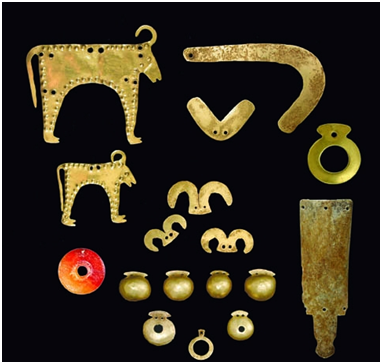 The oldest processed gold in the world, 6 000 years’ old, was found on this land.
The oldest processed gold in the world, 6 000 years’ old, was found on this land. 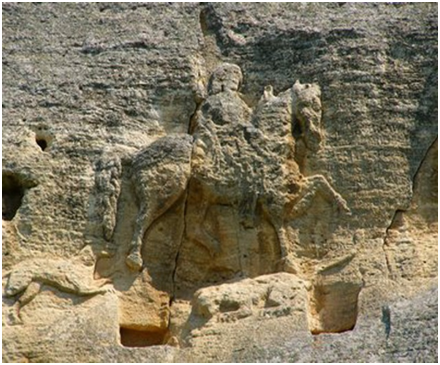 An important stop in a journey round Bulgaria would be the unique monuments of Bulgarian culture under the aegis of UNESCO, among them the Boyana church with its magnificent frescos and the Madara Horse Rider, which is the largest bas-relief in Europe.
An important stop in a journey round Bulgaria would be the unique monuments of Bulgarian culture under the aegis of UNESCO, among them the Boyana church with its magnificent frescos and the Madara Horse Rider, which is the largest bas-relief in Europe.
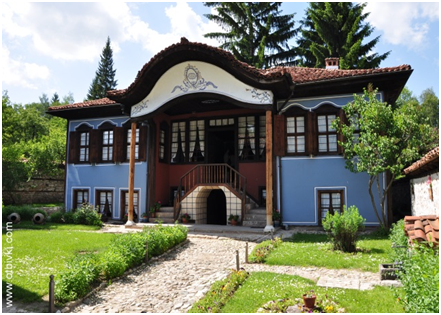 The beautiful Renaissance houses of Etara, Koprivshtitsa, Tryavna, Shiroka luka or Old Plovdiv will strike you with their original architecture, unique Balkan look and lots of romantics.
The beautiful Renaissance houses of Etara, Koprivshtitsa, Tryavna, Shiroka luka or Old Plovdiv will strike you with their original architecture, unique Balkan look and lots of romantics.  The Bulgarian folk customs and traditions are an incredible mixture of colours and sounds, pagan and Christian symbolism – fire-dancers, Kukers, Koledari, Lazaritsa etc. will stay in your mind as an unforgettable memory of your Bulgarian adventure.
The Bulgarian folk customs and traditions are an incredible mixture of colours and sounds, pagan and Christian symbolism – fire-dancers, Kukers, Koledari, Lazaritsa etc. will stay in your mind as an unforgettable memory of your Bulgarian adventure.
Spread in the folds of the Rila, Pirin and Balkan mountains are around 400 highland lakes. The Pirin National Park and the Srebarna National Natural Reserve are included in the UNESCO list. Bansko, Borovets and Pamporovo are Bulgaria’s winter resorts offering modern and contemporary infrastructure, excellent snow tracks, lifts and drags, cozy tearooms and restaurants and experienced ski instructors. The ski tracks of Bulgaria’s winter resorts have hosted competitions of European and world championships in various disciplines.
The Bulgarian Black Sea coast is a magical place! The warm sea, caressing sun and ancient culture meet and merge here. The beaches have the finest sand, smoothly sinking into the embrace of the sea. To this you can add the luxury of the new hotel complexes or the coziness of the small marine towns and villages. The ancient town of Nessebar is one of the culture monuments of world significance, protected by UNESCO.
Bulgaria is the country with the greatest number of mineral springs in the world after Iceland. So far nearly 600 mineral water springs have been discovered and explored, of which more than 80% have healing qualities and water temperature of between 20 and 100 degrees Celsius. A large part of the mineral waters in the country spring up from great depths, which is a warrantee of their purity.
Official name: Republic of Bulgaria
Capital and largest city: Sofia
Form of governance: parliamentary republic
Official language: Bulgarian
National holidays: 3 March – Day of Bulgaria’s liberation from the Ottoman domination; 24 May – Day of the Bulgarian education and culture and of the Slavic alphabet; 6 September – Day of Unification; 22 September – Bulgaria’s Independence Day
Currency: 1 EURO = 1.95 BGN
International phone code: +359
Religions: Orthodox Christians – 60%; Muslims – 7.8%; Protestants – 0.9%; Roman Catholics – 0.7%; atheists – 31%
Ethnic groups: Bulgarian – 84.8%; Turks – 8.8%; Roma – 4.9%. Remaining 1.5% - Jews, Armenian, Russians, Ukrainian etc.
Elections: the last parliamentary elections were held on 26 Match 2017, the presidential elections of the Republic of Bulgaria were on 6 November 2016, the local elections on 25 October 2015. Forthcoming elections – for members of the European Parliament and local elections in 2019
Organisations: Bulgaria is one of the founders of the Organization of the Black Sea Economic Cooperation and the Organization for Security and Cooperation in Europe; the country is also a member of the UN, the Council of Europe, the European Union and NATO.
Geographical data:
Location: a country in Southeastern Europe, in the eastern part of the Balkan peninsular
Size: 110 993.6 sq. km
Population: 7 364 570 inhabitants (according to the 2011 official census)
Climate: moderate continental
Neighbouring countries: Romania to the North; Serbia and the Republic of Macedonia to the west; Greece to the south and Turkey to the southeast
Sofia is the capital and the largest city in the country. It is the 15th largest city in the European Union with a population of 1 307 376 residents. Sofia is situated in the central part of Western Bulgaria in the Sofia hollow and is surrounded by mountains: Vitosha to the south, Lyulin to the west and the Balkan to the north. Its total size is 492 km2 and its altitude is between 500 and 699 m. This makes it the fourth highest capital city in Europe.
Sofia is the main administrative, industrial, transport, cultural and university center of the country, concentrating 1/6 of Bulgaria’s industrial production. It is also the home of the Bulgarian Academy of Sciences, many universities, theaters, cinemas, the National Gallery, archeology, history, natural sciences and numerous other museums. In the city center there are many visible remnants of Roman time archeology monuments.
Sofia was announced the capital of Bulgaria on 3 April 1879. It bears the name of the Late Antiquity city cathedral St. Sofia. The city holiday is celebrated on 17 September when the Orthodox Church honours the Saint martyrs Sofia, Vyara, Nadezhda and Lyubov. The city slogan is “Grows, but never grows old”. Sofia is among the most ancient European capital cities. Its history can be traced back to the Neolithic time. Traces of several Neolithic settlements discovered on its territory date back to 5000 years BC.
Vendors
The ACEEEO gratefully acknowledges the generous support of the following organizations in 2017:
 Information Services is a leading Bulgarian tech company, a system integrator with over 45 years of experience and provider of intelligent elections solutions.
Information Services is a leading Bulgarian tech company, a system integrator with over 45 years of experience and provider of intelligent elections solutions.
The company boasts a team of over 300 highly-qualified developers, communication specialists, system administrators and service engineers.
Information Services operates a well-developed branch network in all regional centres in Bulgaria. All ICT services that the company offers are available in Sofia, as well as in any other office of the company throughout the country. The branches have fully-equipped halls for holding ICT trainings.
For over 15 years Information Services has been a key partner of state institutions in the implementation of their ICT projects. The Ministry of Finance, the National Revenue Agency, the Customs Agency, the Ministry of Regional Development and Public Works, municipal administrations, courts and many others are all in the company clients list.
Information Services is the first governmentally approved provider of qualified certification services in Bulgaria.
The company invests in its employees and their professional development, providing hi-tech environment, suitable certification trainings and practical professional prospects to all of its specialists.
Information Services is among the leaders in the Bulgarian ICT sector in the field of system integration of information services in the central and local administration, the development, implementation and maintenance of new technological solutions.
The company partners with leading world ICT producers and suppliers. We are Microsoft Gold Certified Partner providing design, development, implementation and maintenance of applied information systems. As Оracle Gold Certified Partner we provide management, surveillance and administration of database management systems, design, building, implementation and maintenance of large corporate applied systems. Partnering with VMware we build, manage and maintain virtual infrastructure environments.
Our mission is to work towards establishing e-government in Bulgaria. We aim to be a unified system integrator of the state.
Our services
- Audit, analysis and preparation of plans for development of the local and central administration
- Audit of the ICT infrastructure and the implemented systems
- Preparation of projects under the operational programs targeted at e- government
- Upgrade and optimization of the implemented ICT solutions
- Implementation of electronic services based on qualified electronic signature e ID and secure time stamp
- Project management and coordination
- Centre for Professional ICT training the company is certified to hold trainings and host certified exams by Pearson VUE Test Centre.
- In its capacity as leading system integrator of the municipal and state administration, Information Services is in charge of maintaining the ICT system. Participates and assists the implementation of management decisions.
The company has implemented third party audited Integrated Quality Management System including ISO 9001:2008 for quality management, ISO 27001:2013 for information security management and ISO 20000:1-2011 for IT services management.
Information Services is a member of the Bulgarian Association of Information Technologies (BAIT), BASSCOM, Bulgarian Association “Intelligent transport systems” (BAITS), Bulgarian Association of Networking Academies (BANA), the Association Telecommunications, the Association of Licensed professional training centers and the Bulgarian chamber of commerce and industry
Our History
The history of Information Services dates back to 1970 when State Economic Unit MOSI was established. In 1974 the unit was transformed to Scientific and Production Association “Automation”. Three years later, in 1977 was established the Unified System for Social Information Committee (USSIC), which integrated the statistical activities in the state and the Unified System for Social Information (USSI).
Based on USSIC, the Social Information Committee (SIC) was established in 1984, which in 1986 gave rise to the Economic Unit „Information Services“. In the years to come Information Services was first transformed into a state-owned company, then into a single member joint-stock company (EAD) with public participation and finally in 1997 the organization became Information Services JSC.
 Smartmatic, your trusted partner for the best-run elections
Smartmatic, your trusted partner for the best-run elections
At Smartmatic we help electoral commissions around the world run elections with unmatched speed, security and accuracy. Our customers see the benefits of the efficient and credible elections that we deliver, enjoying respected status as the global reference point for best electoral practices.
Benefits from working with Smartmatic. Do you want faster electoral returns? A clean and trustworthy voter registry? Or the most secure and simplest voting processes? We can help you improve these electoral activities –and many more– making them more transparent and efficient. Whichever stage of the electoral cycle you would like to improve on, our wide portfolio of products and services can meet your needs.
Who we are. Founded in the USA in 2000, we are the leading provider of voting technologies and solutions worldwide. Today, out of the eight countries pioneering election automation we provide technology and services to election authorities in six of them: Belgium, Brazil, Estonia, the Philippines, USA and Venezuela.
We have managed elections across five continents, processing over 3.7 billion votes. We serve our customers through an organization comprising over 600 employees across 12 offices around the world.
For more information visit www.smartmatic.com


